Episode 33: Board Meetings | Top 2 Sources of Information
Why only Top 2? Because there are 4 of us in this episode! The whole team sits down for our first Board Meeting together, and discusses the Top 2 resources where we each get our information. The internets are full of bullshit information, so it's hard to know when what you're reading has any sort of integrity or validity. We break it down the way we do, with lots of laughs in between, and let you know where we look to first for the information we believe in.
You've heard from Paul in the podcast, but you haven't heard from Blake yet. You can learn a little more about all of us HERE.
Here are some links that we mention in the episode, so that you don't have to scour the interwebs to find them:
And one more that we don't mention in this episode, but have before: our very own Paul has an excellent blog at Crux Conditioning with a regular post titled "Bullet Points and Brews." It highlights articles he's read that week, as well as a good beer. You should read it every week... he makes it even easier to cut through the bullshit.
And in case you forgot, SHARE us on your social medias. You can even share us on your Twitter if you want, but we don't tweet. We scream like eagles.
Like what you hear? Subscribe to The Power Company Podcast on ITunes, Google Play, or Stitcher Radio, and leave a rating and review!
FULL EPISODE TRANSCRIPT:
Kris Hampton 00:01
Hey everybody, Kris here. Just a couple of quick notes on today's episode. This is the first of two Board Meetings that we recorded with the whole team, all four of us. And at the time, we only had a system that handled two microphones so the sound was a little bit rough. And I've done what I can to make it acceptable to me. I'm sure you guys will be just fine with it. Also, because of your continued support and continued patronage, we've since upgraded to a system that handles four mics. We've also upgraded on microphones. So from here on out, things are just going to get better. Thanks, you guys.
Kris Hampton 01:03
What's up, everybody? I am your host, Kris Hampton.
Nate Drolet 01:06
This is Nathan Drolet.
Paul Corsaro 01:08
I'm Paul Corsaro.
Blake Cash 01:09
And I'm Blake Cash.
Kris Hampton 01:10
The whole gang is here, the whole team. We've convened here in Chattanooga. And what were you guys up to today? What happened? Anything exciting? Anybody? Anybody?
Nate Drolet 01:20
I leave for Texas tomorrow, so that's good. I'm done with Amazon. And yeah, I'm no longer a Christmas minion, locked into a warehouse, so I get to rock climb again.
Kris Hampton 01:33
We definitely missed the opportunity to have you in a Christmas minion suit.
Nate Drolet 01:37
That would've been pretty good.
Kris Hampton 01:37
Yeah, we should do that next year. Even if you don't go back to Amazon, let's let's work on that.
Nate Drolet 01:44
Let's hope I don't.
Kris Hampton 01:46
Paul, coaching all day I presume?
Paul Corsaro 01:48
Yep, coaching all day, had some one on one sessions in the morning, some floor coaching at Scenic City in the afternoon, and then finished with a good kettlebell class with some regulars. And now I'm here.
Kris Hampton 01:57
Awesome. If you guys don't know Paul, he's our strength and conditioning guy. He helped co-write our Kettlebells For Climbers Plan and we're working on Kettlebells For Climbers 2. It's it's in the final stages pretty much.
Paul Corsaro 02:13
We're close.
Kris Hampton 02:13
Might be out by the time you hear this since these things get just shelved for months, so we'll see. Blake, what were you up to?
Blake Cash 02:20
I was actually one of Paul's one on one sessions this morning.
Kris Hampton 02:25
Sick. You got the FMS this morning.
Blake Cash 02:26
Yeah, we discovered my shoulders are imbalanced. So we worked on that and then I cut my hand putting an ice cube into a jar. And
Kris Hampton 02:35
I'm not even sure how that works
Blake Cash 02:36
Broke the glass.
Kris Hampton 02:38
Oh shit.
Paul Corsaro 02:38
I think it was the shoulder imbalance.
Blake Cash 02:40
I was using my right hand.
Kris Hampton 02:43
So so you either need smaller ice cubes or larger glasses.
Blake Cash 02:47
Yeah, I know. I was trying to force it in and it broke. Cut my hand open
Nate Drolet 02:51
Or just drink it straight.
Blake Cash 02:52
Yeah, I should have done that.
Kris Hampton 02:53
Stop being a bitch.
Blake Cash 02:54
I had to transport it here though.
Paul Corsaro 02:55
Yeah.
Nate Drolet 02:57
Is that, what 300 feet?
Blake Cash 02:58
Haha yeah pretty much.
Kris Hampton 03:01
Yeah, and me, I just stared at my computer screen all day, doing a whole bunch of work, trying to figure out what the hell The Power Company is going to do in 2017. We're trying to figure this thing out. So...
Nate Drolet 03:12
All the things.
Kris Hampton 03:12
All the things, we're gonna do all the things. We're taking shit over. Today, however, we're gonna talk about our top three sources of information. Where we get what we believe in, or maybe we don't believe in it. It's still information, right?
Nate Drolet 03:28
We may not even list three.
Paul Corsaro 03:31
Maybe only two.
Kris Hampton 03:32
We're gonna talk about our top two, since there are four of us. You guys are correct. Occasionally, I'm wrong. So take me off your top two information sources. So I'm gonna let let's let the guests start here. How about Blake?
Blake Cash 03:52
Well, my number one.
Kris Hampton 03:54
And speaking of which, sorry, I didn't I didn't introduce you properly. Blake runs our pre-written app plans. So if you're one of those customers, you're most likely working with Blake and he's he's doing a great job coaching through that those pre-written apps or they're basically our ebooks that we've turned into the app plans and we've updated them and they're pretty cool. So if you're looking to have some accountability in your training, you're not so good at following an ebook, that's the way to go. Blake's your guy. So head is up. Okay, enough interrupting. What's your number one?
Blake Cash 04:31
All right. My number one is a man named Steve Bechdel. I'm sure if you listen to this podcast, you've probably listened to him talk a lot. And also understand that he has a lot of information to give out. So Steve makes me want to question and research further and kind of figure out exactly how to implement the information that he's kind of disseminating.
Kris Hampton 04:57
Yeah, and I've listened to Steve talk a lot because I'm always sitting across the table from him. So I tend to tune him out because I know I'm gonna have to listen to him later while I'm editing this damn thing. But no, seriously, Steve's, Steve's pretty incredible to talk to. He's he's always got a cool way of relating things to the
Blake Cash 05:19
He's like the Yoda of climbing talk.
Kris Hampton 05:21
Yeah, exactly. For a second there. I thought you said yoga and I'm like what are you talking about dude?
Blake Cash 05:25
No, Steve doesn't do yoga.
Kris Hampton 05:28
He does stretch though. I've seen it. But yeah, he just he has a great way of relating it to the common person and you can really understand what Steve's talking about, which I really appreciate. So have you guys met Steve? You have Paul, I know.
Paul Corsaro 05:42
Very, very briefly.
Nate Drolet 05:44
I have not, but I'll be going to his seminar...clinic.
Kris Hampton 05:47
Yep. Yep. Nate and I are going to his kettlebell seminar in May.
Kris Hampton 05:52
I mean climbing coaching. Kettlebell, I was just thinking of that because Paul met him at a kettlebell clinic.
Nate Drolet 05:52
Kettlebell?
Blake Cash 05:57
0 for 2
Kris Hampton 05:58
I know man. It's over for me. I'm retired. Yeah, Paul met him at a StrongFirst
Paul Corsaro 06:09
Certification
Kris Hampton 06:09
Certification. Yeah, he and Charlie.
Paul Corsaro 06:11
Yep.
Kris Hampton 06:12
Yeah. And if you, where can we find Steve? climbstrong.com
Blake Cash 06:15
On Facebook, Elemental. You can go to Lander.
Kris Hampton 06:20
Elemental in Lander
Nate Drolet 06:21
You can find him in Lander.
Kris Hampton 06:22
You can definitely find him there, at his gym. In fact, he forces us to do all his podcasts at his gym. Even though it would sound better elsewhere, Steve, in case you're listening.
Nate Drolet 06:31
He actually programs wall balls for that hour.
Kris Hampton 06:35
He does. Charlie's just in the background dropping weights on the ground. No, yeah. Steve. Steve is definitely awesome. We've had a couple episodes three, maybe with Steve, and definitely more coming since I'll be posted up right near him.
Paul Corsaro 06:50
They're all great.
Kris Hampton 06:51
Yeah, for sure. Paul.
Paul Corsaro 06:54
Oh, yeah. So my first one kind of a softball, kind of cheating for a couple different ways. It's the organization I'm affiliated with StrongFirst, and there's more than one person who contributes this information. So it's not just technically one source,
Kris Hampton 07:06
Not just Pavel?
Paul Corsaro 07:07
It's not just Pavel anymore. It's a big part of Pavel, lot of Pavel's philosophy. But some of the other kind of head instructors. You've got world renowned power lifter, Dr. Mike, Michael Hartle. He handles all their barbell barbell instruction programs and puts out a lot of great content. Karen Smith does a lot of bodyweight stuff, really impressive stuff with tension development, and just how to use your body to get really, really strong. And then you've got a Brett Jones. He's the chief kettlebell instructor. He's also, I guess, going down, he's also closely affiliated with the second source of information we'll get to later. But I just really like the organization. It kind of changed how I am as a coach.
Kris Hampton 07:50
Yeah.
Paul Corsaro 07:50
And yeah, just minimalistic, simple, effective. And really nothing new in strength training, which is to be completely honest, there really is nothing new strength training.
Kris Hampton 08:01
Right, right. It's all just tweaks.
Paul Corsaro 08:02
Yep.
Kris Hampton 08:02
And one thing I really like about StrongFirst, and I send a lot of people here, is their videos are great for
Paul Corsaro 08:10
Absolutely.
Kris Hampton 08:11
Their kettlebell work is what I've looked at most. I'm sure there's other stuff out there. But but their videos do a really great job of describing what you're doing and helping you understand why you're doing what you're doing. So yeah,
Nate Drolet 08:22
When I explained the swing, that's what I normally have my Hey, pull up StrongFirst, like they do a great job of explaining the kettlebell swing. Yeah, is there anything you prefer about StrongFirst, as far as, do you feel like there's one mindset that everyone kind of shares or anything along those lines?
Paul Corsaro 08:40
It's in a way very similar to a climbing community. And from the community aspect, like I've gone to a couple StrongFirst events now.
Kris Hampton 08:47
It's pretty big.
Paul Corsaro 08:48
I went to a programming design seminar taught by Pavel this past June, which was similar to my kettlebell certification, which is physically I developed a lot there training for it and learned a lot how to coach physically. That was this for my mind.
Kris Hampton 09:02
Cool
Paul Corsaro 09:02
Like learning how to design programs, playing with some techniques of varying weights and loads and such that, but it was cool seeing people come from all over the country, and it was like seeing some of their best friends again. And yeah, you break apart, you don't see each other for a while, you come back, it's like, nothing's changed. It's cool to be associated with that organization. And just they're all professionals too.
Kris Hampton 09:25
Yeah, I think that's a really important atmosphere to learn in it as well, because then it's not so it's not so clinical, you know, you're not so nervous. Like, it's not like there's one guy that everybody's there to see right now, because you're all friends.
Paul Corsaro 09:43
Yeah, yes. It's a good group to be a part of, and it's not only enjoyable being a part of them, but they put out some fantastic information that can be used in a bunch of different methods.
Nate Drolet 09:54
And not only that, it seems like like they put out a ton of free information.
Paul Corsaro 09:57
Oh yeah
Kris Hampton 09:58
There's a ton out there
Nate Drolet 09:59
And that's something like kind of lie going with the whole community vibe, like they do such a great job of putting out amazing information constantly to really help better everyone. It's not just like, Oh, well, here's my secret package that I'm going to sell and hope you want to learn information from me specifically. It's like, the amount of free information that's fantastic, that they put out is, that's amazing.
Paul Corsaro 10:21
And it's interesting too, because if you look at a lot of other performance, or hobbies, or really anything, the best organizations or schools of thought, they're usually the ones contributing more than they're hiding. The whole cooperation mindset, we're all better as a whole instead of trying to compete each other, compete with each other, seems to kind of float to the top. And I think that says something about
Kris Hampton 10:44
Yep. Yeah, I've really used a really use kind of that model as what I'm kind of aiming for with The Power Company. You know, I'd like to talk with all the other coaches and all the other trainers and you know, make it one bigger, greater community. So I really looked at what they do, and tried to mirror that on a really tiny little scale. You know, so super cool. Is it strongfirst.com?
Paul Corsaro 11:10
Strongfirst.com. They've got a blog there, they've got any information you might want
Kris Hampton 11:15
And you can get to all their trainers from there? You can find local trainers?
Paul Corsaro 11:20
There's a directory, it's all there. Their blogs, fantastic bunch of really good information out of there. Yeah, so super simple to remember to kind of like, how they go about things simple yet effective.
Kris Hampton 11:30
Yeah.
Nate Drolet 11:31
You gotta be StrongFirst.
Kris Hampton 11:32
Yep. Nathan Drolet.
Nate Drolet 11:36
Drawwlet. Haha right emphasis on it. I listen to people,
Kris Hampton 11:45
Real people? Humans?
Nate Drolet 11:46
Haha humans. Only on the internet. Preferably in forums.
Nate Drolet 11:53
With with internet aliases
Nate Drolet 11:54
With unvalidated identifications
Paul Corsaro 11:58
Do you think in memes?
Nate Drolet 12:00
Exactly.
Blake Cash 12:01
Haha yeah,
Nate Drolet 12:01
I communicate in them. I don't actually think first. No I just honestly, like, something that's been big for me is listening to everyone. Like this could be someone who just started climbing, someone who's been climbing forever, like anything in between, like, it's everything that we learn, like there really are, like just a handful of basic skills. And then there's just a level of depth to all of them, and rock climbing. And so it's really fun to see someone who's, you know, they learn how to drop knee for the first time ever, ever. And they're just like, oh, like, I turn my hip in, and like I do this or that. And, you know, it's the things that it's easy to be like, Oh, you know, I've learned this forever ago. But like, I feel like, it's so common that I relearn all these same things. I'm like, Oh, that's right. Like, you know, focusing on breathing in that specific way, when you're stressed, like, is beneficial. So it's really fun to like, see all these people going through these different things. You know what I mean? A lot of these people are like way better climbers than I am. And so I can kind of hear them. And then when I hit these points, like sticking points or whenever I hit like, a certain moment, I'm like, Ah, this is what this guy was saying. I was just talking with a buddy of mine the other day about this. When I first started climbing, I always heard people talk about whenever they grab incut holds they like, try and leverage them away from the wall. Like they intentionally, almost like you're trying to snap a crimp in the wall. And for years, I was like, I don't like I don't understand that. Yeah, I just like grab the hold and I pull.
Kris Hampton 13:27
That's funny that you say that because I think the way you climb is leveraging the hold out from the wall. Because you use your thumb and I just don't use that appendage.
Nate Drolet 13:35
Yeah, yes. It's what makes us human.
Kris Hampton 13:39
I tuck it under whenever I have an incut hold.
Blake Cash 13:42
I drop my pinky.
Kris Hampton 13:44
And the pinky. I use three fingers. Yes.
Nate Drolet 13:47
I think naturally to some degree, I always did leverage a bit, but never like with the intention of what these guys were saying. I mean, the guys who were saying it, like these are all like, great, like, you know, V14 rock climbers. And I was just like, it was something that didn't make sense. And until just recently, I'm like, oh, like, this is what they were saying. You know, so everything from people who are just starting, and they're like, trying to explain this awesome thing that they're going through for the first time. Like, you're just understanding how like they even move through space. And it's really cool to hear that and like try and relate myself to that. And like, remember what it was like to go through or even just like, compared to what I'm going through now. Or to like, look at people way beyond me. And yeah, try and take that.
Kris Hampton 14:28
Yep. Do you ever talk to people who are you feel like are you know, much earlier in the process than where you're at? And they say something and you're just like, Oh, no, that's wrong. And then later, you're like, Oh, no, they were right. Like, now I get it.
Nate Drolet 14:49
I don't know.
Kris Hampton 14:50
You're never wrong.
Nate Drolet 14:51
I'm never wrong. Yes, I'm the final say.
Kris Hampton 14:55
Or do you think you just keep your mind open? I think that's hard to do.
Nate Drolet 14:58
I try and keep open and things I mean, I guess it just depends on, it depends on what people are talking about. Because I guess like, I want to try and view things from other people's standpoint. And sometimes, I mean, I definitely don't understand where people are coming from, like, I'll hear them. And I'll just be like, yeah, like, I sort of know what they're saying, but I can't like, get on that same field. Is that if that makes sense?
Kris Hampton 15:20
Sure. Sure. Sure.
Kris Hampton 15:21
So sometimes, and then, like, it will click later on. I'm like, Oh, this is what they meant by that. I don't feel like anyone's like wrong. It's just, you know, we all have just different depths of understanding. I mean, like, and that's kind of the cool thing. Like, I feel like I'm just now like, with so many things, there's times, and there's times I just, like, geek out so hard. I'm like, Oh, I finally like I understand this thing about backstepping. And like I explained someone they're like, no fucking shit, dude. Like, yeah, what do you mean you use outside of your foot? Like, that's what everyone's been doing forever. I'm like, No, like, you outside edge when you outside edge. Like, boom,like, it all makes sense. Now, like, holy shit.
Kris Hampton 15:59
Yeah. There's meaning behind these words.
Nate Drolet 16:01
No, but it's like, I mean, like, that is a huge one for me. Like, I always thought outside edge was just like kind of a word. Like, I didn't realize you actually use like, your pinky and ring toe and like when you're backstepping. And it's funny because I came across Robyn Erbesfield actually had said it to someone. And it's funny anytime she says, give someone advice, and I read someone else's like, Oh, this is great advice I got from her. It turns out to be pretty good advice.
Kris Hampton 16:26
You're surprised by that?
Nate Drolet 16:27
No, it's just it's funny that like, I've heard three different things that people have mentioned that like oh, Robyn Erbesfield told me this. And
Kris Hampton 16:34
She's kind of a good climber, so
Nate Drolet 16:36
Yeah, also
Kris Hampton 16:37
She's a good coach, apparently.
Nate Drolet 16:38
Yeah. She's done a great job. Also, there's an amazing book. It's Sport Climbing by Robyn Erbesfield or something like that.
Kris Hampton 16:44
I've seen it.
Nate Drolet 16:44
Oh, my goodness. So it's from I think the 90s. But there's this incredibly there's incredible photo of her standing on a podium in blue jeans and a jean jacket and the jean jacket has all her sponsor
Kris Hampton 16:54
Sponser patches. Haha I remember that photo.
Nate Drolet 16:57
All pro climbers listening right now, please bring back the sponsor jean jacket. If you could just wear a tuxedo or a Canadian tuxedo on top of all podiums that would be amazing.
Kris Hampton 17:07
Canadian tuxedo haha. Sorry that we just alienated all of our Canadian listeners. But
Nate Drolet 17:12
Not sorry.
Paul Corsaro 17:13
Prana makes the stretch jeans now you can just climb in that shit now dude.
Nate Drolet 17:16
But do they make the jean vest?
Paul Corsaro 17:18
They should.
Kris Hampton 17:19
So iLL's got the sweet, sweet stretch jeans.
Nate Drolet 17:23
But yeah, so she, it's funny, I'd read a blog and this actually may have been Crux Crush as well. But they were just like, Oh, yeah, at one point Robyn Erbesfield was like, hey, when you anytime you backstep use the outside of your, of your climbing shoe, like not the toe toe point itself.
Kris Hampton 17:38
She had never climbed in the Red at this point because backstepping in the Red you put your whole foot in the hole.
Kris Hampton 17:43
Just glob it on there.
Kris Hampton 17:45
Yeah. But I hadn't read this until after I had already kind of like learned it on learned it for myself. But once I read it, I was like, Ah, that's incredible. Like, and I'm sure even if I had read it prior, because I hadn't learned it for myself. I wouldn't have digested any of it. Yeah, something as simple as that. It's like, oh, when you backstep use the outside of your foot. Like, this is this tiny little thing. But like, for me, it made the biggest difference in the world. But uh, yeah, so it's kind of fun to like, pick apart and talk with other people when they come across these like, huge moments, like totally to kind of see what they're going through. And like, sometimes you can relate to yourself, or sometimes you can, like I get the opportunity to to relate it to someone else have that same level, like someone who's learning at that same.
Kris Hampton 18:29
Yeah, it definitely makes us better coaches, for sure. If you listen to all the other people at all the different levels
Paul Corsaro 18:35
And real talk, I just got snapped out of a reverie when you talk about jean jackets, because I was thinking about leveraging incut holds. I don't think I've ever done that. So I know what I'm gonna do the next time I go rock climbing is try and leverage some holds.
Kris Hampton 18:50
And I'm gonna wear a jean jacket.
Nate Drolet 18:51
I thought you were gonna say
Paul Corsaro 18:52
That would be a good day out at Rock Town tomorrow.
Nate Drolet 18:54
I'm gonna bedazzle a jean jacket.
Paul Corsaro 18:56
Fuck yeah.
Kris Hampton 18:56
Yeah, bedazzled Power Company logos would be sweet. We all need them.
Nate Drolet 19:02
Yes.
Kris Hampton 19:05
Is that me? Am I up?
Nate Drolet 19:07
I believe so. That's That's all I got. Listen to people.
Kris Hampton 19:09
All right. My number one is this podcast, which sounds a little funny. Doesn't mean I'm listening to my own podcast though I do. About 18 times every fucking episode. So like
Nate Drolet 19:21
Is my voice really that smooth? I mean, I knew I was a baritone, but
Kris Hampton 19:26
But getting to talk to all these all these coaches and trainers and athletes and, and and regular folks who, who have something exciting going on that I can learn from. I think it's you know, a lot like you were talking about listening to everybody. I really like this idea of zeroing in on something that someone does. And then almost always, there's something surprising about it that I wouldn't have guessed. You know, and that's that part is really fun for me to hear from these people and, and start to connect more dots. So getting to talk to all these people, and then getting to hand it over to everyone else, let everyone else hear it is probably my biggest source of information right now. Hasn't always been that way. But now that I'm creating a lot of the content, it's hard for me to listen to a lot of the other content. I just don't have the time. But there are some podcasts that I, like when I was really getting into podcasts, that I loved, and a couple of them are no longer recording, but they're still around so you can go check them out on iTunes, and those are the Move Smart Podcast.
Nate Drolet 20:44
That one's really good. If you get the chance listen to the Udo Neumann.
Kris Hampton 20:47
Yeah, Udo, dream guest of mine. So Udo if you're listening, and the Performance Podcast, which is coach Robert dos Remedios. And Will Fleming. And they're more of a strength training and mobility and performance podcast. And the Move Smart Podcast is all about just the moving in a more functional way.
Nate Drolet 21:12
So you're gonna say in a more smart way.
Kris Hampton 21:18
And there's one that's still out there called the Aligned Podcast that I really enjoy as well. And his is similar to Move Smart, but much more quirky and strange. So check it out. Yeah, be prepared for quirky.
Nate Drolet 21:30
How is it compared to America's Test Kitchen?
Kris Hampton 21:34
It's not as good as America's Test Kitchen, honestly.
Nate Drolet 21:37
What can be? I mean, let's be honest.
Kris Hampton 21:42
It doesn't make me as hungry as America's Test Kitchen
Nate Drolet 21:44
Aw man.
Kris Hampton 21:46
But yeah, so podcasts are huge for me and and talking to the guests on this podcast.
Nate Drolet 21:52
Yeah, no, I think it's a great way. And I'm especially like, some of that's really cool with a lot of the a lot of the people in climbing who are who we see is like the professionals or like the information leaders. Like very few of them come from very, like very few are like climbing trainers,initially by trade, like they came from somewhere else. Like maybe they were engineers, or wherever, like they had different jobs before this or different lives before this. Or even maybe they still do. I mean, like Steve Maisch is what an economist or teaches economy economics?
Kris Hampton 22:26
I'm not sure.
Nate Drolet 22:27
I believe so.
Blake Cash 22:28
Yeah, I'm pretty sure that's right.
Nate Drolet 22:29
Yeah. So all these people have different lenses through which they view climbing training. Yeah, so it's really cool. Like, on the whole topic of like, how you discuss things and how, like, how you get information through other people, like, engineers are gonna be able to talk with engineers better than anyone, they're really not good at talking with people in general. But just like everyone has their own take on it, it's really cool to see like, if you have someone who has, let's say, a dancing background, and they get into like coaching, climbing, like they're gonna have a completely different view of things, versus someone who maybe was like a lawyer first, or Yeah, like an engineer, or someone who I don't know, just whatever like, or has like a strength and conditioning background, like everyone has their own pieces that they can attach to that. Yeah.
Kris Hampton 23:16
And I really appreciate that, you know, like, I love that Eric Horst is out there. And he's super into the data and the studies and all of that, because I just can't do it. Like, it's not in my personality to get down and read that stuff.
Paul Corsaro 23:31
Studies are brutal.
Kris Hampton 23:33
And Eric does a good job of, of being that go between, you know, and then there and there are people at all levels, they're the, the white coats and the labs, learning this information or putting it on paper. And Eric translates it to climbers, and then Steve can take it from there and translate it a little further, and then we feed it on down the chain, you know, and I think that's, I think that's huge. It's super important to have that whole big group, that whole big family,
Paul Corsaro 24:00
Especially in terms of studies, like both sides of that are really important. Like, you've got the scientific studies where they've got the controls, they've got, you know, the clinical trials and all that. But a lot of times to get those controls, you have to make things so specific. That, sure it may not be proven in the study, but that could because it doesn't meet a confidence interval or the figure that show just how reliable or valid I get lost in the term. Sometimes there's a difference, but it, it may be just outside that range, which sure you can't publish it and say, yeah, this is a valid result of our study. But it might still work. Like there's people who try stuff and then they go back and study that and then they either prove it or sometimes they say it doesn't work, but if it worked for them, like if it works, it works, for the most part,
Kris Hampton 24:51
Right, its really the bottom line
Paul Corsaro 24:52
But yeah studies or studies are tricky like that.
Kris Hampton 24:54
Yeah. So I appreciate that. There's all those types of people out there
Nate Drolet 24:57
And you have guys like Will Anglin as well, who are out there like self experimenting? Put out a campus board series of posts.
Kris Hampton 25:06
Yeah.
Nate Drolet 25:06
The 301 is my favorite, the one where he pretty much says no one do this.
Blake Cash 25:10
Haha yeah. No one.
Nate Drolet 25:11
Please don't do this. I'm warning you. Okay, now that you've been warned here's what I did.
Blake Cash 25:15
Yeah, I think weighted campusing
Nate Drolet 25:17
Yeah that said, it's super interesting, like its crazy to me
Kris Hampton 25:24
Going down the experimentation rabbit hole now, aren't we?
Nate Drolet 25:27
Yeah, I was talking with, talking with someone about talking with someone about training that isn't sustainable. And yeah, as an example, so don't do y'all ever hear about how Adam Ondra trained for Gioia, the V16 in I think Verazze in Italy.
Paul Corsaro 25:50
This wasn't that video that came out about how he trained right?
Nate Drolet 25:52
No, I don't think there was ever any video.
Paul Corsaro 25:54
Okay
Kris Hampton 25:55
That was more sport climbingish training.
Blake Cash 25:56
The one that everyone mimicked. And then got hurt.
Nate Drolet 26:00
Yeah, ow by everything.
Nate Drolet 26:03
No, he was closed hand crimping on his first two fingers. And he was campus boarding. So he was campus boarding in a closed crimp with only his front 2 fingers. And he did it for like, a decent amount of time. And then I think he had to take like two weeks off. He was just like, I felt like everything was gonna explode, took two weeks off, and then came back. And he was like, Well, my hands are now the strongest I've ever been. But that's like an example of completely unsustainable like form of training. And like if that guy got close to like, the breaking point, like man that's got to be pretty heinous. But yeah, so it's kind of cool that like, there are people out there like doing all these different things. We can kind of hear about it. Like, I don't. I don't want to do that. But
Kris Hampton 26:43
You don't put that in all your plans?
Nate Drolet 26:44
Dude, front 2 finger closed crimp? Yeah.
Kris Hampton 26:47
All your clients do that.
Nate Drolet 26:48
Yeah, that's my
Paul Corsaro 26:49
You must not want any more clients.
Nate Drolet 26:51
Exactly. I'm all full this year, go ahead and do closed 2 finger crimping. See me in six months.
Kris Hampton 27:01
All right, let's take a break. What's up everybody? Kris here. Pardon the Interruption. I'll keep this short and sweet. Since this podcast started taking off and we've been growing it, you guys have been asking how you can help out. I've got three ways for you. Number one, you can become a patron. That just means you give a monthly donation to the podcast $1 and up and you get something in return. And you can check out what those rewards are at patreon.com/powercompanypodcast. Best of all, we'll keep it sponsor and commercial free for you. Number two, you can rate us and review us on iTunes. I know it's a pain in the ass to go to iTunes and do all that. But it really helps us out. At least that's what I'm told by the podcast powers that be. And number three, perhaps the easiest way and the best way to help us out is to share us on your social medias. Anytime you see us post up a new podcast, please share it with your friends, tag people who will really appreciate it, or who need to hear the advice that we're giving. All right, thank you guys. And back to the show. What's your number two, Blake?
Blake Cash 28:11
My number two is my peers. If you don't listen to your climbing partners, and what they had to tell you, you're doing it wrong.
Kris Hampton 28:19
Yeah, for sure.
Blake Cash 28:21
Yeah, I think we all have different strengths and weaknesses and ways that we approach climbing, whether it be mentally, strategically, whatever. And I think personally, I've made an effort to listen to my friends, peers, climbing partners more and more this year and I think as a result I've learned so much even just like learning by watching someone try really really hard and realizing like oh shit that's actually how hard I need to be trying like I'm not trying nearly as hard.
Kris Hampton 28:59
BJ Tilden
Blake Cash 29:00
Yeah exactly like I call that the kill switch
Kris Hampton 29:04
Yeah no doubt
Blake Cash 29:05
Like climbing with him over the last year like I learned so much. I was in Rifle this summer and I was trying this route and I would literally like climb up to this like ledge about to start the route and I would like put my head against the wall and I would say in my head like three times like kill switch kill switch kill switch. And eventually I did the route but i don't i don't know if that helped but it definitely put me in a mindset
Kris Hampton 29:31
And it made you look ridiculous
Kris Hampton 29:32
And it made me look ridiculous. Yeah, beating my head against the wall. You know,
Paul Corsaro 29:35
Were you in a kneebar?
Blake Cash 29:37
No, actually I wasnt. I was standing on the ledge leaning against the wall yelling "kill switch" at myself.
Kris Hampton 29:42
But definitely with two duct taped kneepads
Blake Cash 29:45
Only had one
Nate Drolet 29:47
But his leg was shaved and he used spray on glue.
Blake Cash 29:49
Yeah, ingrown hairs, you know my leg.
Kris Hampton 29:53
But yeah, I think that's I think that's super important. You know if if the people who are watching you climb the most can't see what's going on, if you don't believe they can see what's going on there, you're just not accepting reality.
Blake Cash 30:07
Yeah, if you're if you're listening to them,
Kris Hampton 30:08
They watch you climb all the time.
Blake Cash 30:09
Yeah, and shutting your brain off and like hearing them, but not actually trying to put what they're telling you into action. I mean, if you're already hanging there or on the ground, and it's a boulder, like you might as well like, try it once and humor them. You know, I love humoring my friends when they try and tell me something and I'm convinced that it's wrong. And
Kris Hampton 30:29
I always like it better when they're wrong.
Blake Cash 30:31
Yeah.
Kris Hampton 30:32
When I'm like, Oh, yeah, see what happened? You're stupid.
Blake Cash 30:34
Yeah. Yeah,
Kris Hampton 30:35
I like that. But more often than not, they are right and I'm like, fuck, I don't get to make them feel stupid now.
Blake Cash 30:40
Yeah, yeah, exactly. Or oftentimes, it'll be some like, you know, iteration of what they told you to do. You know, you can like, take a little piece of this and a little piece of what you've done and like, create something that makes sense. And then, you know, I think also, not necessarily about with like beta and climbing, but you know, I think just like, there are lots of different ways to train and there are lots of different ways to get stronger. And I personally have like a text chain with shoutout Ryan Johnson and Andrew Miller. And we, you know, we talk and we share information. And, you know, because Ryan's a part of it, there's a lot of berating and you know, name calling, but I think in the end, we're all better because of it. And I think you know, you got to listen to the people you're with the most
Kris Hampton 31:29
Yeah, no doubt, no doubt.
Blake Cash 31:31
Yeah.
Nate Drolet 31:31
Do you feel like do you feel like you have to sift through the bullshit to get to it? Like, I mean, because at some point, they're gonna be like, Blake, you haven't fallen yet today. You're like, I've hit the bottom of the rope like eight times. Like, but you haven't fallen? Like, I hear what you're saying, like you're weighting the rope. But, you know, you're saying take or you're letting go. Like, when are you gonna fall like, and obviously, you know, you're gonna say these kinds of things in jest. But
Blake Cash 31:55
Yeah, I mean, I think I think you have to know, I think you have to be close enough to those friends to be able to, like, have those conversations. I think like, you know, I'm not gonna have those with like someone that I don't really know.
Nate Drolet 32:10
Just like random belay over at the Project Wall. Hey bro, sit down. Yeah, we need to talk this out. Why aren't you wiping off your shoes? They are muddy.
Blake Cash 32:18
Haha yeah. You gotta spray alcohol on your hands before you can grab the starting holds. I saw you eat that tuna.
Kris Hampton 32:27
I saw you pet that dog.
Blake Cash 32:28
That happened to me in Hueco my one trip there.
Nate Drolet 32:30
Really?
Paul Corsaro 32:31
For real?
Blake Cash 32:31
Yeah. I was on a tour and we're eating and my buddy Tyson was like, finished eating his tuna and he was getting on Full Service. And the person who is touring us around was like, do you mind cleaning off your hands first before you touch the starting holds?
Nate Drolet 32:49
I actually think I know who you're talking about. But I would do the same, like so
Kris Hampton 32:54
Its a small, small world we live in.
Nate Drolet 32:57
That's funny.
Blake Cash 32:57
I mean, he hadn't touched the tuna, like he was eating with like a spoon. But she was so scared of oil getting on the starting hold.
Nate Drolet 33:06
Okay, that's different. I was thinking, yeah, like, someone's eating like Flaming Hot Cheetos and they're like,
Blake Cash 33:12
He wasn't like picking up like sardines and olive oil in his hands and like throwing them in his mouth and like rubbing his hands. Yeah,
Nate Drolet 33:19
Sick bastard. I mean, sardines and mustard, that's one thing. Maybe with some crackers, but olive oil?
Blake Cash 33:24
Olive oil, no
Nate Drolet 33:25
Savages.
Blake Cash 33:26
I always get them packed in water.
Kris Hampton 33:30
Do you find there's a break in period for this kind of thing? Like, Have you always been able to just listen to your partners? Or is it something that you've really worked on?
Blake Cash 33:42
No, god no, it's been a constant. Like, I have to work and be conscious of like, listening and taking that information. And you know, we had you told us a list of three. So I wrote three.
Kris Hampton 33:54
Yep.
Blake Cash 33:54
And my third was actually myself. In that, like, I take that information. And I don't actually believe it. Until I see like it work.
Kris Hampton 34:03
Sure.
Blake Cash 34:04
And I think that's kind of like the, the last kind of part of that process.
Kris Hampton 34:10
The last step in making it all come together.
Blake Cash 34:12
Yeah, yeah.
Nate Drolet 34:15
Do you have any partners that you feel or do you feel like there are any types of partners where it's really tough to have these kind of conversations with? I'll use an example of my own. I find when you're in a relationship with someone,
Kris Hampton 34:30
Haha 100 percent
Nate Drolet 34:31
It makes it a little hard. I can't and I mean, I'll fully admit, like, I've had times where the person I was with, like, they'd be belaying me and they'd be like, why don't you? I'm like, I don't want to hear it. Not now.
Kris Hampton 34:42
And then like, he says that to me all the time.
Nate Drolet 34:44
Yeah. Not now chief, I'm in the zone. But yeah no, like, it's just like, I yeah, I don't know what it is. There's definitely like a tough barrier sometimes. And I like you see this at the crag all the time. Like, I always found this hilarious. I'd be like, Hey, why don't you try that heel hook, and you know, the person would be would be like that's not gonna work. Like, no, that's stupid. And then like some other girl would walk up and be like, Oh, well, I use a heel hook. And she'd be like, Oh, that's great beta. I'm gonna use that right now.
Kris Hampton 35:10
Yeah.
Nate Drolet 35:12
But I mean, I think like, you have to take a step back with stuff like that and be like, okay, like,
Blake Cash 35:17
Yeah, I mean, there are definitely people that
Kris Hampton 35:18
Can you do it with Erynn? Do you and Erynn have that sort of thing?
Blake Cash 35:20
It has taken a lot of time. It's taken a lot of time to get to that point. I think it's learning how to frame questions and also, I mean, you know, like, again, in Rifle this summer.
Kris Hampton 35:36
Questions or advice?
Blake Cash 35:37
Yeah, this route I was trying, I was like, falling in the same spot over and over again. And one day, I'm hanging there. And Erynn, like, suggests, like, why don't you lower down really low and try and link and I was like, No, that's stupid. I don't want to do that.
Nate Drolet 35:55
No one overlaps.
Blake Cash 35:56
No. I know, this is like, you know, the best tactic you can do, but I was like, 30 feet off the ground of like, you know, like 130 foot route. And I'm like, No, I if I lower down, I've done like five moves in. And finally I decided to do it after sitting there and like not wanting to do it and pouting because I'd fallen again and I was hanging in a tree full of aphids,you know,
Kris Hampton 36:19
And after a dozen times of her going ummm.
Blake Cash 36:23
And then I did it. And that was like the day I realized I could do the route actually. And then it was just like a matter of a couple days. And then I did the route. So I think, yeah, it takes time. I think you have to know the person really well, to be able to go down that road with them. And to answer your question. Yeah, I think there are people that I'm more prone to listen to than not. I think there's also I think, I only really climb with the people now that I do want to listen to, because I think those people make me a better climber. I think they like hold me to a standard that sometimes I don't even hold myself to, which is like, pretty cool.
Kris Hampton 37:08
Yeah, yeah. That's good to have.
Blake Cash 37:09
Yeah. Yeah.
Kris Hampton 37:10
There are definitely times when it's helped me to step back and look at myself as the coach, like, what would I tell myself? You know, if I were coaching me, and you know, and I've been like, oh, you're being an idiot, you should have done this a long time ago. You should have sent this route months ago, you know, and it's worked. So
Blake Cash 37:30
Yeah, and doing this thing now, you know, working with you guys definitely makes me look at myself a little more closely and be a little more like, critical of what I'm doing and how I'm doing it.
Paul Corsaro 37:42
100%
Blake Cash 37:43
Yeah, absolutely. You have a totally different lens to look at, like what you're doing through
Nate Drolet 37:48
When you're telling everyone hey, just be patient and trust me. And suddenly you're over here like, no, I need to progress today, tomorrow and the next day. I progress all the days.
Blake Cash 37:57
Every day has to be better than the day before or I'm failing.
Nate Drolet 37:59
Progression is linear now.
Blake Cash 38:01
Yeah, exactly.
Nate Drolet 38:02
I fully agree. I mean, it's helped me a ton. Like, I've actually been doing some very interesting campus board workouts. This is the most patient I've ever been with progression, like progressing a workout, like I'm just like, Hey, I'm just gonna, halfway through a session. I'm like, I can make this harder. But no, I'm like, okay, like, let's just be patient. How would you like have someone else do this? And it's been fantastic. Like, everything's been staying really healthy. I'm getting way stronger. Like, everything's feeling good. And it's, yeah, it's been cool. But it's something that I never, I know I never would have been this patient had I not like, had it if it wasn't my job to tell other people to be patient and be like, hey, like, you're gonna have some shit days, like, you're gonna have some great days. You just have to, like, you just got to work through it. Like, that's something like, having learned for myself. Like, I go through such extreme waves of highs and lows. And I mean, I think anyone when they are training hard, like you were just gonna be days you go in, you're like, I feel like hell, and there's gonna be days you go and you're like, I'm the king of the world. Like I could crush everything. If every day was like this a year from now I'll be sending Lappnorr Project.
Blake Cash 39:14
Those days happen like once every like couple weeks.
Kris Hampton 39:17
They happen every couple of weeks for you? Shit.
Nate Drolet 39:20
Oh that's sad.
Kris Hampton 39:22
Like they happen like once every three years for me.
Nate Drolet 39:25
Oh, I thought we were going the other way.
Kris Hampton 39:27
So I'm older than all of you, that's why. I'm blaming it on age.
Nate Drolet 39:30
Sovone of my favorite Fred Nicole quotes, it's him and Berndt Zangerl.
Kris Hampton 39:34
Wait, Fred Nicole talks?
Nate Drolet 39:35
Yes. He doesn't just crimp.
Kris Hampton 39:40
Aww sick.
Nate Drolet 39:41
It's "Everyone has good days and bad days. We just have a lot of really good days." That's him and Bernd. Those bastards. But they are right.
Kris Hampton 39:52
They are right. Yeah, I do. I think it's important to be your worst critic and your best friend all at the same time. Sometimes tose are the same thing and listen to your partners. Yeah, no doubt.
Kris Hampton 40:05
Paul, I think you're up.
Paul Corsaro 40:06
Yeah. So I'm gonna call a complete audible from what I planned on saying,
Kris Hampton 40:10
All right. That's how we do here.
Paul Corsaro 40:11
Yeah, just, you know, talking and thinking tends to kind of have ideas bubble up in the head. But I'm gonna go with coaches from other sports, or coaches who deal with people from other sports because a lot of the same problems are just from a different viewpoint. And I like especially for me from climbing, for climbing related stuff. I look at baseball coaches, or people who train baseball players and a lot of the stuff I look for, for information for me is more strength training related just because that's kind of my wheelhouse right now. I do a lot of work in the strength conditioning field. So I look for what's gonna help me improve and what I do so but baseball coaches and climbing, baseball training and climbing training has a lot in common. You're both using your upper upper arm, your shoulders, all that stuff pretty intensely, like you can you can mess yourself up a lot.
Nate Drolet 41:04
Yeah. Oh, man, especially with baseball pitching. So much more extreme than anything you'll ever go through in climbing
Paul Corsaro 41:10
And the high level baseball strength conditioning coaches, or the kind of the technique coaches, the stakes, let's be real, the stakes are way higher for those coaches. I mean, MLB pitchers' arms are worth millions of dollars. It hasn't happened yet where a climber is a millionaire because of climbing, as far as I know,
Kris Hampton 41:29
Not that I know of. Could be there.
Paul Corsaro 41:30
Yeah, it's close, it's coming, but a 100 millionaire, because of climbing, that's not there. Yeah, but and so a lot of the coaches there have started to especially the last 5-10 years or so, figure out a way to improve the arm, take care of the arm, take care of the shoulder and get stronger and perform better in a way that is going to be very sustainable, long term. Because, yeah, if you're a strength and conditioning coach or a pitching coach, and you have your pitcher have a labrum tear, because you're an idiot, you're not going to keep your job for very long.
Kris Hampton 42:05
Yeah, yeah. And we're brand new into this.
Paul Corsaro 42:07
Exactly. They've been doing it for a long time, baseball is America's sport, or they say it is. That's a different topic. I think it's changed, but we're not going to talk about that.
Kris Hampton 42:20
Baseball players don't listen to this. You can speak freely here Paul.
Paul Corsaro 42:24
I apologize to any baseball players I offended.
Nate Drolet 42:27
It's no modern pentathlon, I guess is what he's trying to say folks.
Paul Corsaro 42:31
Something like that. But um, yeah, I think I think looking at sports that have been around for a while and where the
Kris Hampton 42:44
Are you getting anything from Jiu Jitsu? Because you're, you're heavy into that right now.
Paul Corsaro 42:49
I am heavy into that right now. Honestly, I'm so new to it and it's such a new movement discipline for me. I start reading and trying to learn stuff and then I immediately almost have to just walk away, because I'm worried I'm gonna get information overload there.
Kris Hampton 43:03
Sure. Sure.
Paul Corsaro 43:04
Just there's, it's really interesting, because it's a brand new sport. I mean, I wrestled for a long time growing up. But moving around on a mat is about where the similarities end. Once it goes to the ground, it's just, it's different. And you can you can attack arms, you can, you know, stuff where you get disqualified immediately for in a wrestling match, like that's just what it is, but
Kris Hampton 43:26
Right, right, but it's a really movement based sport, you know,
Paul Corsaro 43:28
True
Kris Hampton 43:28
And I think climbing is the same way. For instance, just the other day, we were out at Golden Harvest and you were having trouble with that second, weird move into that strange non hold, I don't even know what to call it. And, and we were trying to figure out what was going on that it wasn't working for you. Because I know, you're, you're way strong enough to do the move. And then I'm like, Okay, I'm pulling with this leg, and you look like your leg is straight, you know, and, and you're not pulling with it. And then you tried it one more time, and you came off and pointed at me like that's it. That works. That's it. You know, so you were able to implement that that little movement change, where a lot of people can't. If you tell them pull with your leg, a lot of people just can't do it. They're like I don't I don't understand what you mean, I can't isolate that and make that change. But you're able to do that immediately. So
Kris Hampton 43:41
And I think a lot of that comes from looking at how other coaches coach mechanics or movements because a lot of the best coaches don't use cues like oh, you need to pull with your leg or you need to flex your hip or stuff like that.
Nate Drolet 44:34
It's internal cues.
Paul Corsaro 44:35
Yeah, internal versus external cues. Because so for example, an internal cue would be you want to try and squeeze your right glute as you stand up out of the squat because you're using too much left glute. Most people when they do that, they're gonna think too much. They're just they're not going to perform the movement correct, it's not going to change a whole lot. Instead, you could say, hey, you need to just really try and push your heels to the floor or push the ground away. That's an external keyword to thinking about something outside of their own body. So coaches, especially on the higher level, professional sports, and just some of the better coaches out there of all sorts of different sports, really have gotten really good at using cues in a way that is novel or unique and makes you really not think but just not, not think about the moves.
Kris Hampton 45:20
Right, but just do it.
Paul Corsaro 45:22
But just do it. Exactly. Yeah.
Nate Drolet 45:24
It helps translate the message, without a ton of extra thought.
Kris Hampton 45:26
That's a good way to put it in. Annalissa actually credits you for a lot of that, because when, when we're out climbing, I definitely use too many words to try and get the message across to her. And usually they sound frustrated to her because I'm her significant other and it's, you know, it's a painful process, like we just talked about, but but when you say something, you can say a word. And she gets the whole message that I just spent 20 minutes trying to describe. And it works great. It's huge.
Paul Corsaro 45:58
And I credit a lot of that to reading, looking at how other coaches cue things and pulling from there, because that's something I've really tried to get better at the last year or so. And it it helps, especially when you're working with youth athletes who, you can't give youth athletes too much to think about, because they'll just it won't work.
Kris Hampton 46:15
Yeah. And they don't want to listen anyway. They just want to be able to do it.
Nate Drolet 46:18
The youth. That's whats wrong.
Kris Hampton 46:20
Yeah the youths.
Paul Corsaro 46:21
And I guess, I guess you boil it down to, Blake said peers, as a coach, my coaching peers would be my second answer. Boiled down.
Kris Hampton 46:30
Well, that's great.
Nate Drolet 46:31
And I think it's worth noting that as far as cues go, there's definitely a place for external and internal. Recently, I came across some information. And internal cues like for physical therapy are fantastic.
Paul Corsaro 46:47
Yes.
Nate Drolet 46:47
Up to 60% of your one rep max. So you know, 60% of what you're capable of internal cues are great for helping to fire specific muscles and really focusing on that, but anything beyond that, and it's, you'll be too overwhelmed by the
Kris Hampton 47:00
You focus too much on making it happen.
Nate Drolet 47:02
Exactly. You're not gonna be able to actually do the movement. So anything above 60, like external cues have shown to be much more beneficial. So yeah, for like strength or performance, like external is going to be much more beneficial.
Paul Corsaro 47:14
So this is just a random question it can be, would you use internal cues coaching someone on like a super sub max boulder problem?
Paul Corsaro 47:21
Yeah?
Nate Drolet 47:21
Yeah,
Nate Drolet 47:21
Um, actually, there's a cool little,
Kris Hampton 47:26
I think a lot of our drills kind of go that way.
Nate Drolet 47:28
Yeah, I feel like half my drills do.
Nate Drolet 47:30
Yeah. It's like, I mean, for instance, like irradiation, like, and I use that in one of my, like, higher end rooting drills. And that's like, overgrip your hands like squeezed down your lats, like tighten your glutes, tighten your core, and just try and like, yeah, 100% grind through a move. So that would be more an internal. But then, as you like, level it up beyond that, and you're trying to bring it closer and closer to your max, it has to be something that becomes more natural. Like, you can't say, Oh, I'm gonna try and like squeeze both my lats down, or both these things. It's like, that has to be just a natural thing that you do.
Kris Hampton 47:30
Yeah.
Kris Hampton 48:06
Yeah. And we've had, you know, 5.14, V12 climbers say that this rooting drill that Nate's talking about is hard, you know, and they're doing it on, you know, V5 boulders. And I think it's really difficult. So I think that, like you were saying, when it's that far below your max, it's, it's a good way to approach it. Yeah.
Paul Corsaro 48:29
You had me do that last year, didn't you?
Nate Drolet 48:30
Yeah
Paul Corsaro 48:31
It was really hard.
Blake Cash 48:32
Dude its so hard.
Nate Drolet 48:34
Yeah, no, it's so I mean, I think there's definitely a time and a place. But you have to, yeah, for internal cues, like you have to draw it back so much. Like one thing I've been practicing recently is pulling towards the direction of gravity, if that makes sense. Like everything I pull, I pull directly down towards the Earth. Like I'm almost over exaggerating it. And actually, like I came across this idea from it was a Tim Ferriss podcast with the acroyoga.
Kris Hampton 49:03
What's, what's the point of this just so we can?
Nate Drolet 49:05
We'll get, we'll get there.
Kris Hampton 49:07
Okay. I'm very confused because gravity pulls enough on me as it is.
Nate Drolet 49:13
You know, that's just it, I'm resisting it.
Kris Hampton 49:16
Okay.
Nate Drolet 49:17
So in this podcast, as I was saying, they were discussing, Tim Ferriss brings up the idea of like yoga handstands because of Chris Sommers. And
Kris Hampton 49:27
Yeah, yeah.
Nate Drolet 49:28
This guy's like, Oh, I love the yoga handstand, which if anyone doesn't know, that's like, when your low back is like arched super hard to compensate, and you're not actually pushing through your shoulders. This guy's like, Oh, it's great for me, because I get tons of business, because I get to, like, fix all these people. And he was saying one of the big tricks to have someone be able to perform a handstand a lot better, is have them actually press into the Earth. He's like, you know, any for every action, there's an equal and opposite reaction. So by pressing the Earth, it's going to make you be lighter, because you're actually like, the Earth is gonna press against you and I was like, that's kind of an neat concept like I want to do it. Like I want to see if it, how it works with climbing. And so yeah, I always pull like in a plumb line straight down towards the earth basically like, I only do this on my warm ups because it takes a lot of like cerebral thought with your feet pressing straight into the Earth. So same thing I'm like, instead of like pulling my hips closer to the wall and pressing them like straight down, I think I naturally always pull my hips in. But hands and feet, everything pushes straight down. And the thing is that, like, it makes me feel like I'm snappier and like lighter. Okay, once again, I can't do it at 100%. Because once Ime an, yeah, once you're close to like 80, 90 100% like, I don't think about anything except for getting to the top pretty much like and I try and be aware of what's happening. When I fall, I'm like, oh, like I was out of balance or whatever. But yeah, you know, you can't think about like, all these different things. Interestingly, it also like, turns your lats on a ton too, by doing that, so it's kind of like an almost like an external cue, like press towards the Earth that works internally.
Kris Hampton 51:02
Yeah, almost like Paul's break the bar cue when you're swinging kettlebells.
Nate Drolet 51:05
Exactly. Exactly.
Blake Cash 51:06
So yeah, that was like huge for me. Just hearing you give that cue to somebody else. I was like, makes so much sense. I started using it. I was like, oh, man, this is amazing. My shoulders are actually like, back.
Paul Corsaro 51:20
It's very helpful.
Blake Cash 51:21
Yeah, I liked it.
Kris Hampton 51:23
Cool.
Nate Drolet 51:24
Yeah.
Kris Hampton 51:26
I think you're up.
Nate Drolet 51:27
Oh, god.
Kris Hampton 51:28
Are you gonna hit us with some more weird shit like fighting gravity?
Blake Cash 51:31
Haha you've been talking the whole time, how is it your turn?
Nate Drolet 51:42
I'm going to get a beer. I don't like this. I'm all empty.
Blake Cash 51:42
Nate's List.
Nate Drolet 51:45
My second one is thought leaders. So I look to and this is similar to kind of what Paul said initially, when he mentioned StrongFirst and StrongFirst is one of the groups of people I look at. But I personally am not intelligent, or I don't
Blake Cash 52:02
Haha end of podcast.
Paul Corsaro 52:03
We're done here.
Nate Drolet 52:04
I'm not intelligent.
Kris Hampton 52:06
I can edit that if you want.
Nate Drolet 52:07
No, no, let's keep that. So I don't have the background, I don't have the training, or really the willpower to read research when it comes down to it.
Kris Hampton 52:17
Yeah it's hard man. So hard.
Nate Drolet 52:19
Like there's a lot of deep diving that goes on. Not only that, let's say if research came out about lat activation or whatever, like during pull ups, I haven't read the entire body of research that's gone into it. Like, there's no way that I could look at this one individual piece and say, how does this compare to everything else that's ever come out? How do I compare to all the other things that are similar? Like, I don't know how to look for bias? I don't know. Yeah, I don't know how to sift through the bullshit, frankly, like, so what I do is I look at the guys who everyone else respects and they say, this guy's putting out great work. He's sifting through everything in strength and conditioning, or in climbing or whatever. And this is the guy who like, these are the people that are really like, producing from that, like they take it and they distill it in a way to where things aren't lost, like, you still get all the value. But it's in a simplified version, like, and I just read what those guys put out, because frankly, like, I have too much to learn, like, I'm not going to read every research paper that comes out. Like I don't have the time, I don't have the want. Like, and frankly, I'm just not skilled enough for it. Like, yeah, I think I could be if I wanted to. But that would take so much time. So instead, I look at the people who that's what they do. And I look at what they put out.
Kris Hampton 53:32
Yeah, no question. I think that's a really good, good way to look at it. And it kind of brings up a thought in my head that you and I've talked about before, and it was Andrew Bisherat at post about, it was on Facebook, and it sparked this giant. I don't even know what to call it,
Blake Cash 53:51
Haha not Bisherat
Nate Drolet 53:52
You've narrowed it down so much Kris.
Kris Hampton 53:54
It was about the we are all training wrong. Like he had
Nate Drolet 53:58
Still not narrowing it down.
Kris Hampton 53:59
Yeah, he had taken, you know, started training a bunch and
Nate Drolet 54:04
Oh, when he put out his own, or he created his own training wall?
Kris Hampton 54:07
Yes. And then he decided that everyone was training wrong, and we're all hurting ourselves and no one's doing it correctly. And and I think what the case was is he wasn't looking at these thought leaders that you're talking about, because all the information he was saying we don't have, is out there. He just wasn't paying any attention to it. Instead, he was looking at the climbing trainers and climbing coaches, who shall not be named, who are not paying any attention to that stuff.
Nate Drolet 54:36
Yeah.
Kris Hampton 54:37
You know, yeah.
Nate Drolet 54:38
Thank you, Paul. Paul just brought me a beer.
Nate Drolet 54:45
I think it's tough because I mean, I don't like know where he was looking from. I know at one point he was mentioning like the 5x5 training. And I like actually I loved the, he put out a post about how he built his own home training system like the wall and all that and how he did it on a budget.
Kris Hampton 55:02
Yeah that's a great idea.
Nate Drolet 55:02
Yeah. And I thought he did a really great job of writing up about it. You know, I think it's, it's really tough trying to find good information out there.
Kris Hampton 55:10
Yeah I don't think he was wrong. I think he was just new.
Nate Drolet 55:13
Yeah, absolutely. I think it was just a matter of like, there is just such a breadth of information out there when it comes to training like it's, it's infinite. Like if I mean, if you want to use an example, look up, like core training, or how to get a six pack like it's infinite like, and
Kris Hampton 55:33
That should be our next ebook.
Nate Drolet 55:35
How to get a six pack
Kris Hampton 55:35
Yeah, how to get a six pack.
Paul Corsaro 55:37
Ab ripper.
Kris Hampton 55:38
Are there? How do we sift through how do you know who is the good information and who is not?
Nate Drolet 55:44
You find the thought leaders.
Kris Hampton 55:45
Are there people that you specifically look toward?
Nate Drolet 55:48
Dan John. Honestly, StrongFirst is a great place to go. Like, I was fortunate in that I had a ton of time, like, I listened to hundreds and hundreds of podcast episodes. And when I heard, you know, 15 people who they were professional coaches, or like different things, like they all mentioned these people.
Kris Hampton 56:05
All referenced those people.
Nate Drolet 56:06
Yeah. Like, you know, like, when I talk to other climbing coaches, they're just like, Oh, you know, who is doing a good job? Udo Neumann. It's like when enough people say it, you're like this Udo guy is probably on point with things. You know, and you just like, you when enough people that you respect or that like command respect, like, when enough people list someone is like, this is a credible source, like like, Okay, cool. Like, you look to them. And then who did those guys say, like, Oh, this is who I look up to, like, this is who's putting out good information? And you kind of keep going up? Yeah, I mean, there's, there's such a breadth of information, but I think there is a, there are key principles. I mean, I, I think a good rule of thumb is kind of steer away from people who are contrarians, like if someone's intentionally just trying to be as against everything as possible. Like like, that's tough. Like, it's kind of them against the world, but
Paul Corsaro 57:03
It's easy to get notoriety. But that doesn't mean you're right.
Nate Drolet 57:06
Exactly.
Kris Hampton 57:07
And people see through the bullshit, I think,
Nate Drolet 57:09
Yeah, I mean, I could sit here and list off the most shenanigans workouts that may work. They may. I've got one. I'm gonna put Kris on here soon. Gonna get those pinkies strong. I think that's actually a good exercise.
Kris Hampton 57:22
Dude, pinkies don't even work. You can't make them strong. They do nothing.
Nate Drolet 57:25
They do nothing.
Nate Drolet 57:28
But yeah, like, I could sit here and just list off all these shenanigans things. But it's like, they're just bits and their methods, their bits and pieces, like look for people who have strong principles. And that's the thing like, there are so many differing minds, and there's so many people have different thoughts, but like, at their base, a lot of them share the exact same principles.
Kris Hampton 57:46
Yeah, totally.
Nate Drolet 57:47
And that's what's been awesome to see like, you have these people who like, you know, some people may use kettlebells, barbells. Some people may use rings and body strength, like, some people are all about mobility, or all about strength, whatever. But at their base, like they, almost all of them agree on, I'd say 90% of the same information. They're like, Hey, this is this is the foundation. And so yeah, it's like, you have to dig a bit one. But once you find it, like, that's where you start is finding that foundation, like all those basic principles can be met, like methods can be strewn out forever from there, like, you know, we could sit and talk reps and set schemes about everything forever. Yeah.
Kris Hampton 58:27
Yeah.
Nate Drolet 58:28
Like that's just it. They are methods like, but like, the basic principles are what are most important.
Kris Hampton 58:32
Yeah, I totally agree. Totally agree. And I think that's, that kind of leads me into the into mine, because you're looking at the thought leaders and the people who all share similar principles. And my second is sort of self experimentation. And I kind of come upon that by looking at the fringe dwellers, you know, the people who are spouting off their ideas that no one else agrees with, you know, and I'm like, Well, let me let me take some of that. Let me see if it works, you know, and I've used myself as a guinea pig a lot. That's, you know, that's kind of how this whole Power Company thing started. I see you really wanting to say something over there.
Nate Drolet 59:17
Isn't that why we have clients?
Kris Hampton 59:20
That's why we have them now.
Nate Drolet 59:22
That's why I train Ryan Johnson. Full guinea pig.
Blake Cash 59:25
Saw him in there this morning.
Nate Drolet 59:27
Front 2 finger closed crimp campusing.
Kris Hampton 59:29
Yeah.
Blake Cash 59:29
So much anger. Rage
Nate Drolet 59:32
But he's doing good.
Kris Hampton 59:34
Good job, Ryan. We love ya.
Blake Cash 59:37
Love you, buddy.
Kris Hampton 59:38
Yeah, you know, I started this thing as an experiment. Like, I don't really know how to get strong. There's so much differing information out there. I'm just going to try some things. I'm going to document it and we're gonna see how it goes. You know, and I continue to do that to some degree, even though I'm not going to let you put me on your ridiculous pinky program. Now I might, I might.
Blake Cash 1:00:01
I need to hear about this pinky program.
Kris Hampton 1:00:02
Yeah, it's pretty interesting.
Nate Drolet 1:00:03
Prolific.
Kris Hampton 1:00:04
Haha. Its prolific. Yeah, I think that experimentation is, I think it's valuable. Because sometimes there are these fringe ideas that do work, and they may not work in every case. You know, like Paul said, you know, everything works to some degree. You just have to figure out in what situation it's going to work. And and I think that's a big part of what I've done to this point is, experiment with different protocols, experiment with different exercises, and just see how it affects me. And then I put it on my clients and see how it affects them.
Paul Corsaro 1:00:42
Would you say you're trying to pull certain concepts out of ideas?
Kris Hampton 1:00:46
Yeah, for sure. And I've definitely, I've definitely gone more down that rabbit hole in later years.
Nate Drolet 1:00:52
More principle based?
Kris Hampton 1:00:54
Yep. Yeah, it started out as more just, I'm gonna do this workout and not knowing anything about it,
Nate Drolet 1:01:00
And throw shit against the wall and see what sticks.
Kris Hampton 1:01:02
Exactly. That's pretty much how it all started. And, and really, it was just me making things up at first, like, this sounds like it might work, you know, and I had no idea. But, but I've definitely taken core principles from the same people that Nate talks about, and that you talk about, and that Blake talks about, you know, learning from your peers. And I've taken those principles and started to apply them over and over and over. So you're right, I can see the same underlying principles in a lot of what I do
Paul Corsaro 1:01:31
The shit that sticks is usually some form of that principle or concept, usually,
Kris Hampton 1:01:35
Yeah, totally.
Nate Drolet 1:01:37
Is there anything, like lots of endurance, that you may have found that hasn't worked for you? I mean, like to be serious, like, that's one of the great things about like, using yourself as
Kris Hampton 1:01:50
Oh, you are so fired from this podcast.
Nate Drolet 1:01:53
Good luck getting me out.
Paul Corsaro 1:01:57
it would be a short podcast then.
Nate Drolet 1:02:01
I'm a talker. No, I mean, like, that's, like, that's one of the things about like, using yourself as a guinea pig, like, you're gonna have successes, you're gonna have failures. And I mean, like, I think when we first started, when we first met was when you were like, 100%. endurance. You could shake out on anything.
Kris Hampton 1:02:18
Oh yeah. Yeah, as long as I could hold it, I could shake out on it. Yeah that was pretty much the rule.
Nate Drolet 1:02:22
As long as you had two pads, you're golden.
Kris Hampton 1:02:24
Yeah. Two pads, maybe three? No. Honestly, I that's, that's for sure. The number one. But there are definitely other things, you know, I've realized that different hangboard protocols work in different ways. And the repeaters worked really well for me early on. And then repeaters later on down the road, did almost nothing for my finger strength at all, you know, so. So I've definitely come to realize that at certain points in a climbing career, or at certain points, when you're at a certain level, different protocols need to happen. So that's been huge. And also, I've realized that it doesn't, just because something works, that doesn't mean that's the only way to get there. There are lots of other ways, lots of paths to the same destination for sure. And I think I realized that the most with campusing because
Nate Drolet 1:03:23
Campus boarding or just campusing in general?
Kris Hampton 1:03:25
Campus boarding, I suppose. Feet off campus boarding, let's, let's clarify that because we just had a big discussion on The Power Company Community page about that. That early on, when I started camping, it was a really great source of what I felt like was power for me. And after my shoulder surgery, I couldn't campus anymore, that there was just, it wasn't gonna happen, you know, even to this point, I still can't campus. It's one of the only exercises that I just can't do, because there's some rebound pain in my shoulder. When it's the low arm, when it's the high arm, it's fine. But when that right shoulder is the low arm, I get a weird rebound pain in my shoulder. So that's the only thing I can't do. But I've realized that I can get power other ways. And I think I can get more power other ways. You know where I was last winter, which was very shortly after my surgery, felt like a more powerful place than I'd ever been even without campus training. So had I not gone through that surgery, I might have said campusing is the way but now I know there's another way to get to that same place.
Nate Drolet 1:04:43
You just going to tease us or was this like limit bouldering or
Kris Hampton 1:04:47
Well, I wouldn't people wouldn't have to pay me to coach them if I gave all the information.
Nate Drolet 1:04:52
Podcast over.
Kris Hampton 1:04:55
No, no, I think it just it just becomes a you know, you can gain power by becoming better moving powerfully.
Nate Drolet 1:05:02
Absolutely.
Kris Hampton 1:05:02
Yeah, it doesn't just have to be pure raw power.
Blake Cash 1:05:06
The campus board is one tool.
Nate Drolet 1:05:08
Exactly.
Blake Cash 1:05:08
It's not like an end all to like a training phase. If you focus everything you do around a campus board, you're not doing it right.
Kris Hampton 1:05:17
Yeah.
Blake Cash 1:05:17
In my opinion.
Nate Drolet 1:05:18
Yeah. All roads lead to 1-5-9. No, I mean, like I, you know, as trite as it sounds like, yeah, if you want to climb more powerfully, sometimes you have to climb more powerfully.
Kris Hampton 1:05:28
Yeah. Yeah. You have to learn how to do that. Just because you have the power doesn't mean you can apply it
Blake Cash 1:05:33
Your legs can be powerful.
Kris Hampton 1:05:34
Yeah, you can.
Nate Drolet 1:05:35
I wouldn't know. I got forearms and a pair of getaway sticks.
Blake Cash 1:05:44
Did you right that one down?
Nate Drolet 1:05:46
Yeah it's in my notes. Work in at some point forearms and getaway sticks.
Kris Hampton 1:05:58
All right. I think we are wrapped up at this point. You can find us on the social medias. The Facebooks the Pinterest even though I don't know what happens over there. The Instagrams where all the pictures are and you can't find us on the Twitters because we don't tweet. Nate, what do we do?
Nate Drolet 1:06:19
We scream like eagles.

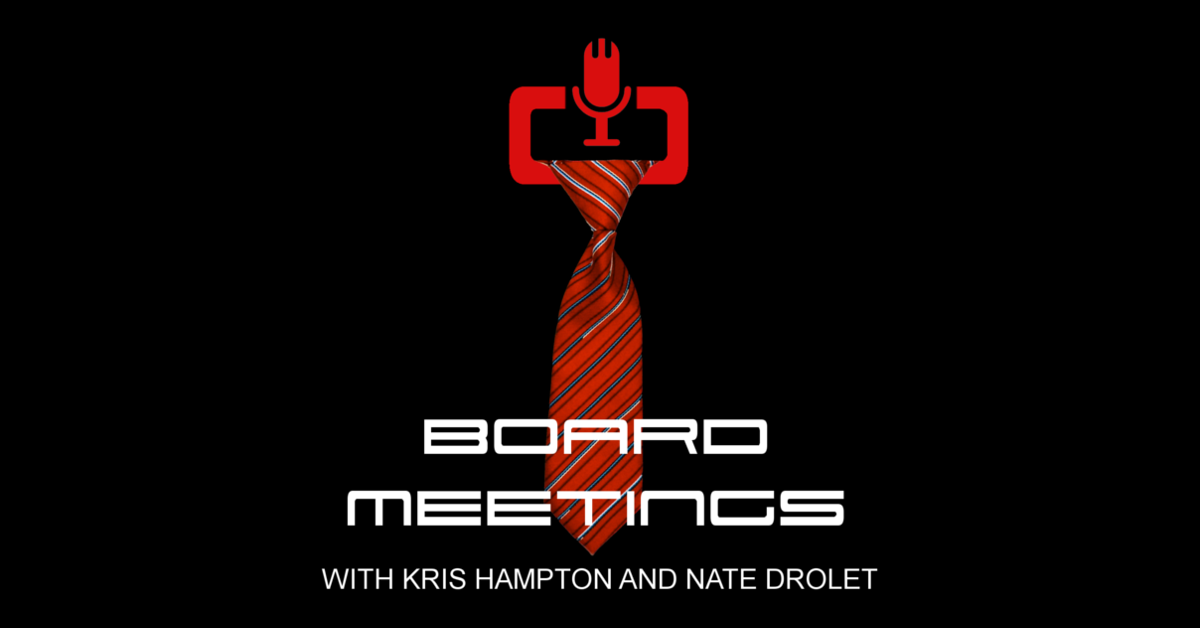

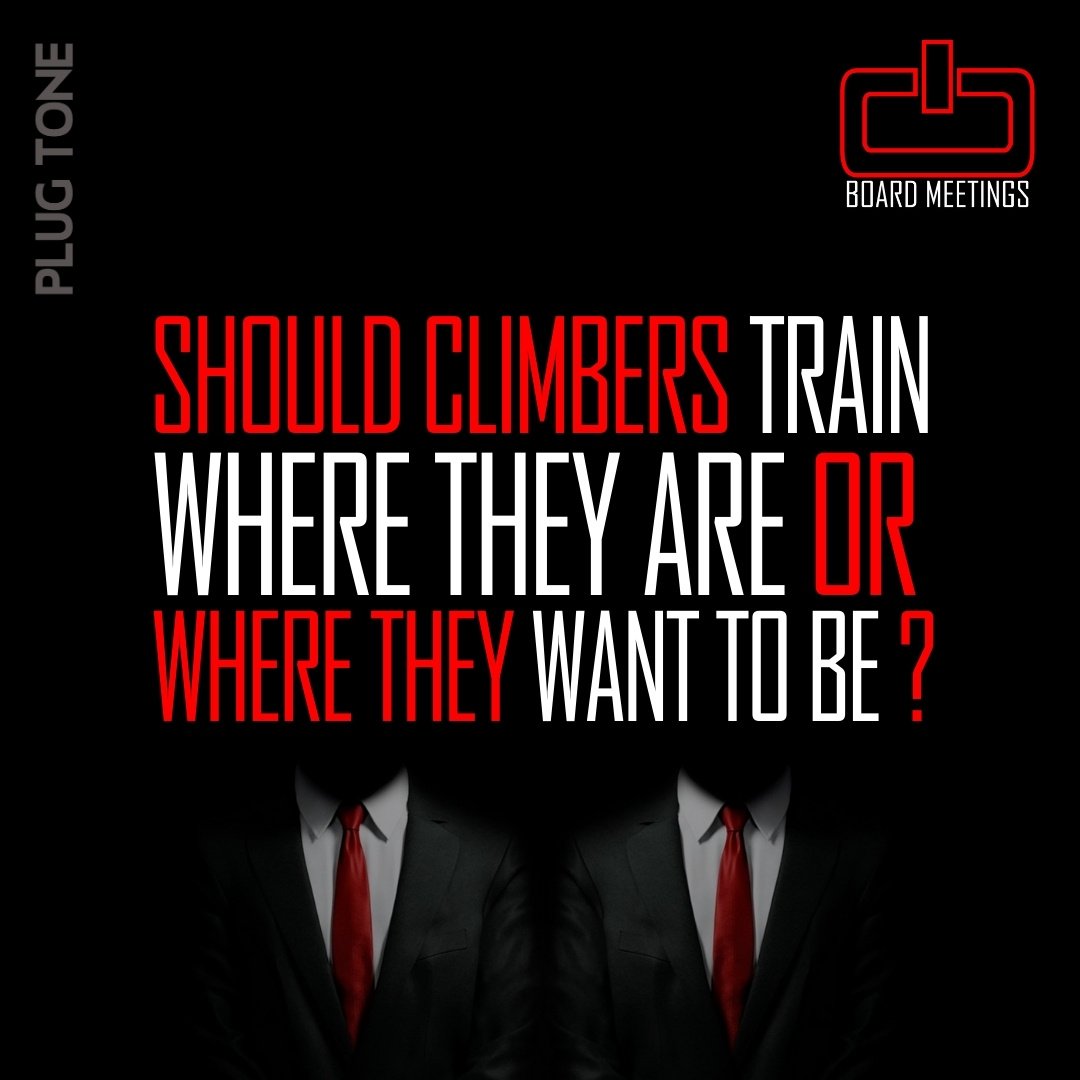


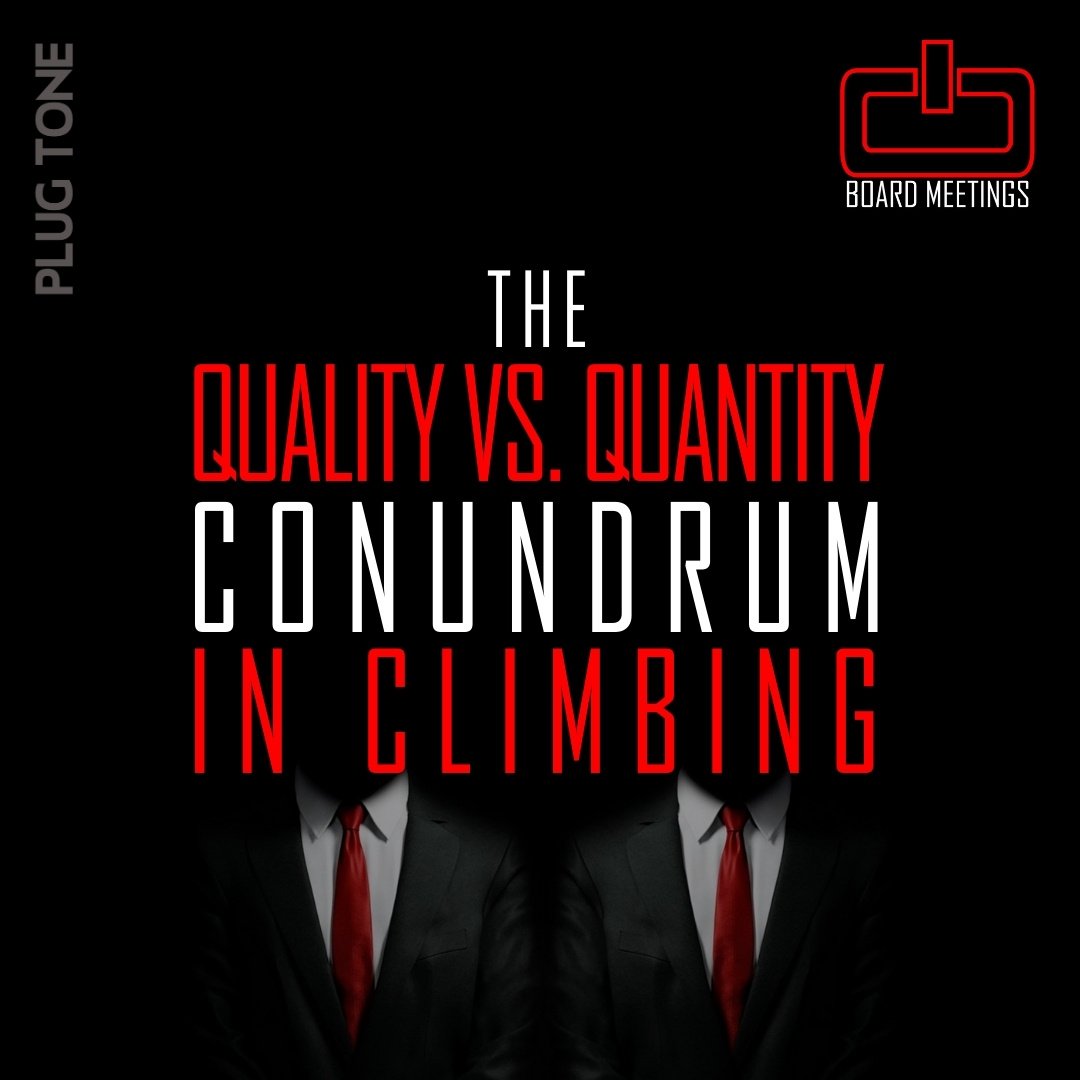
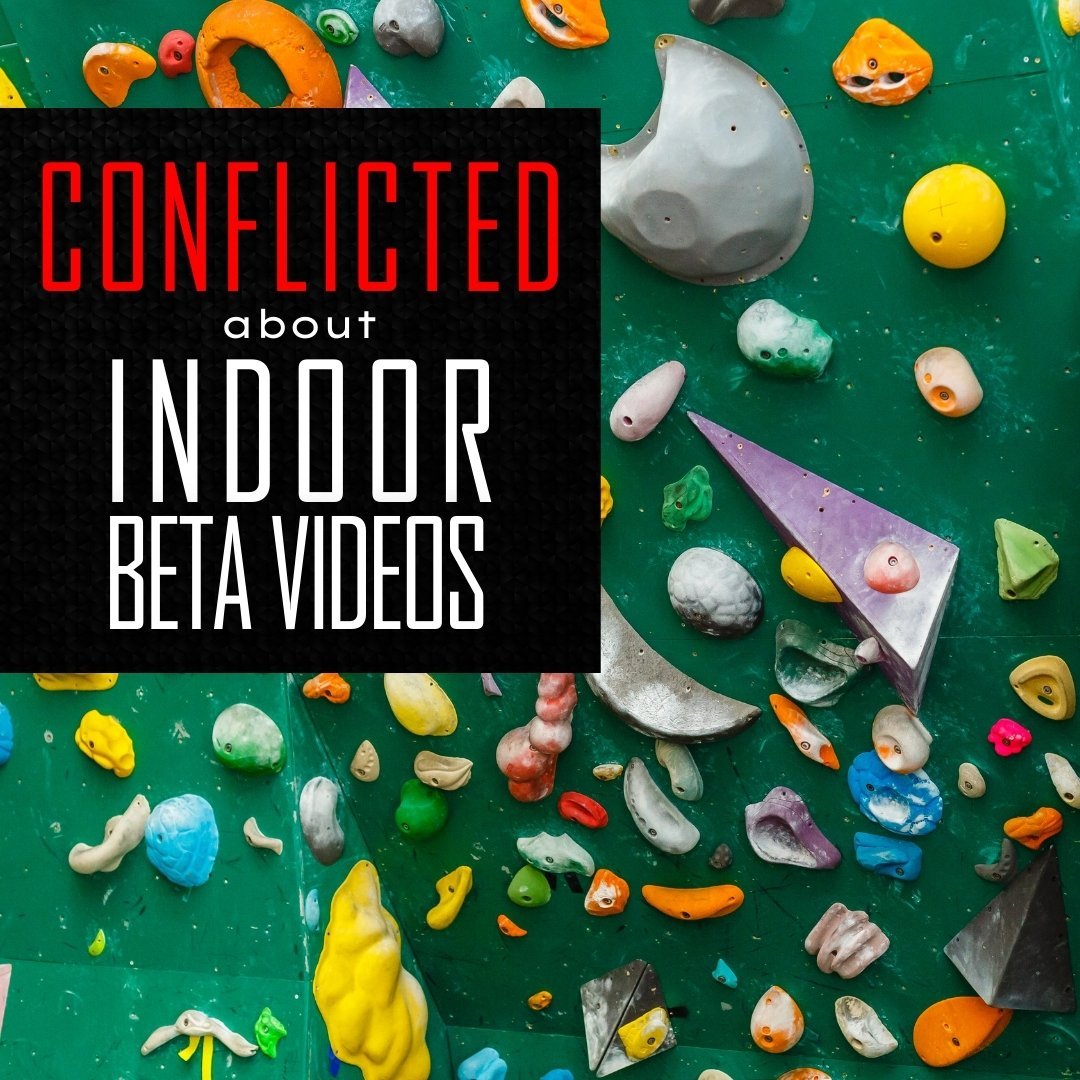
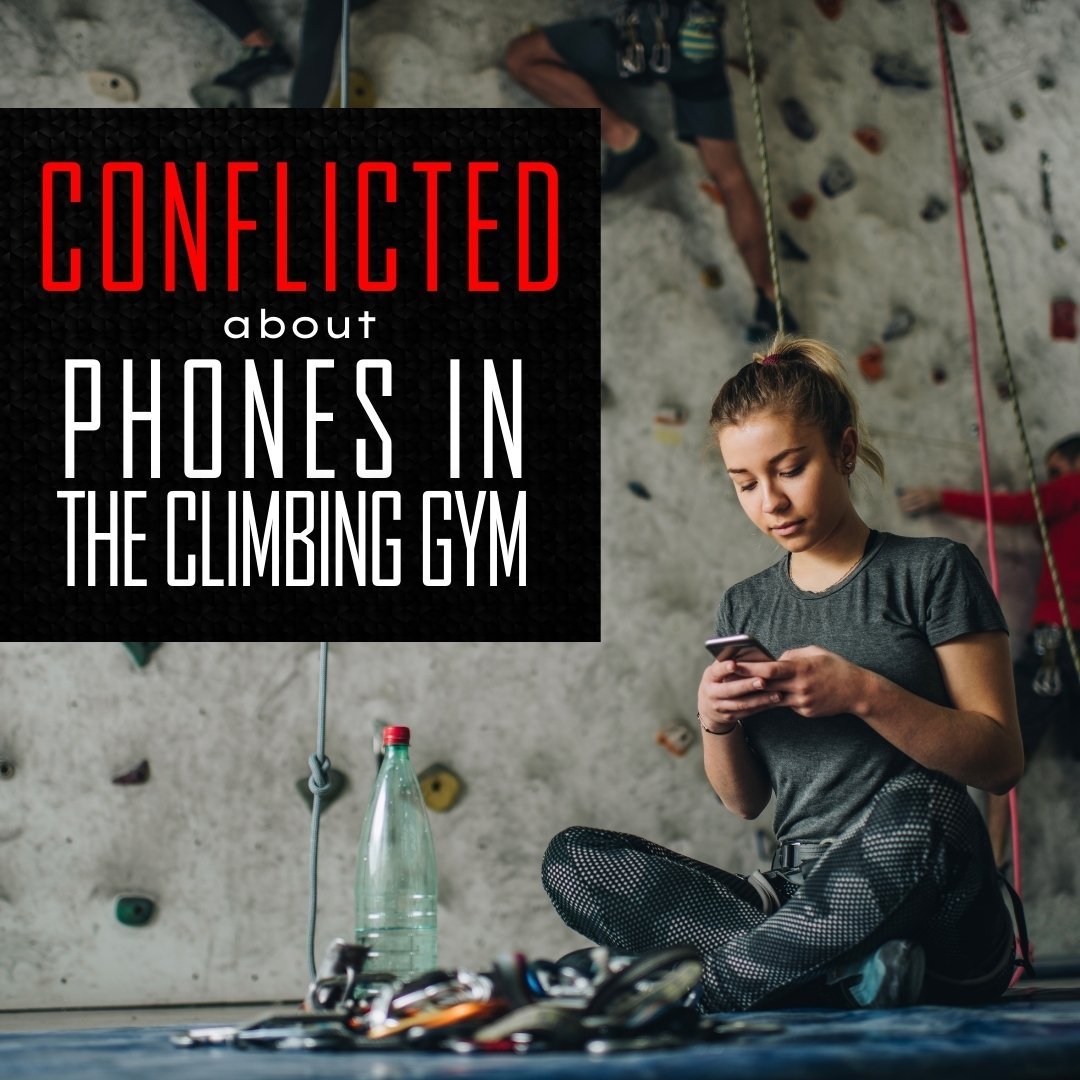
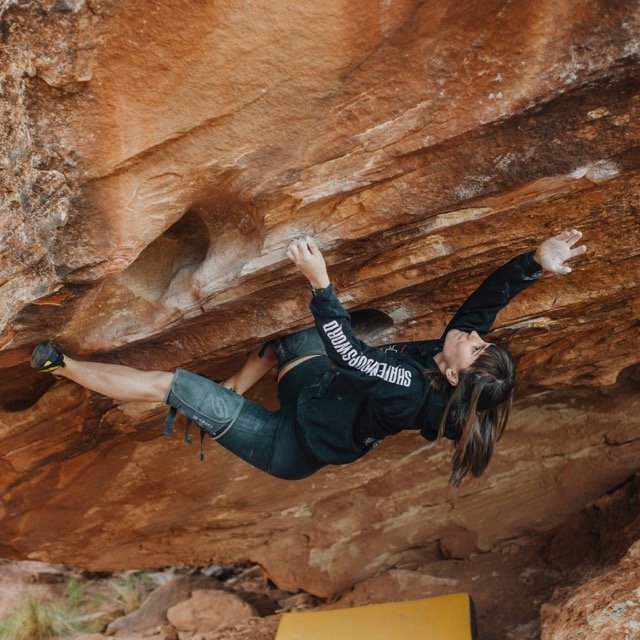

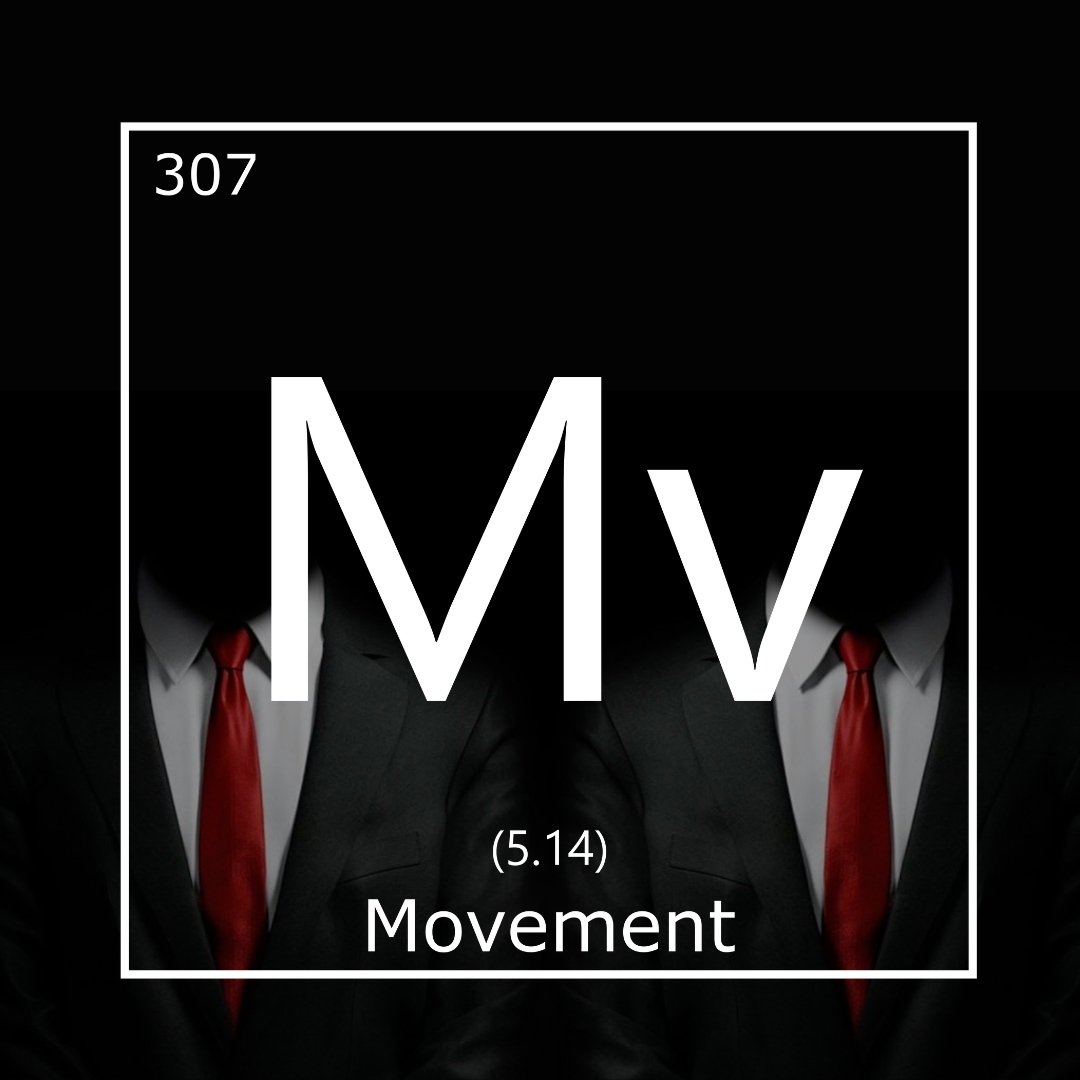
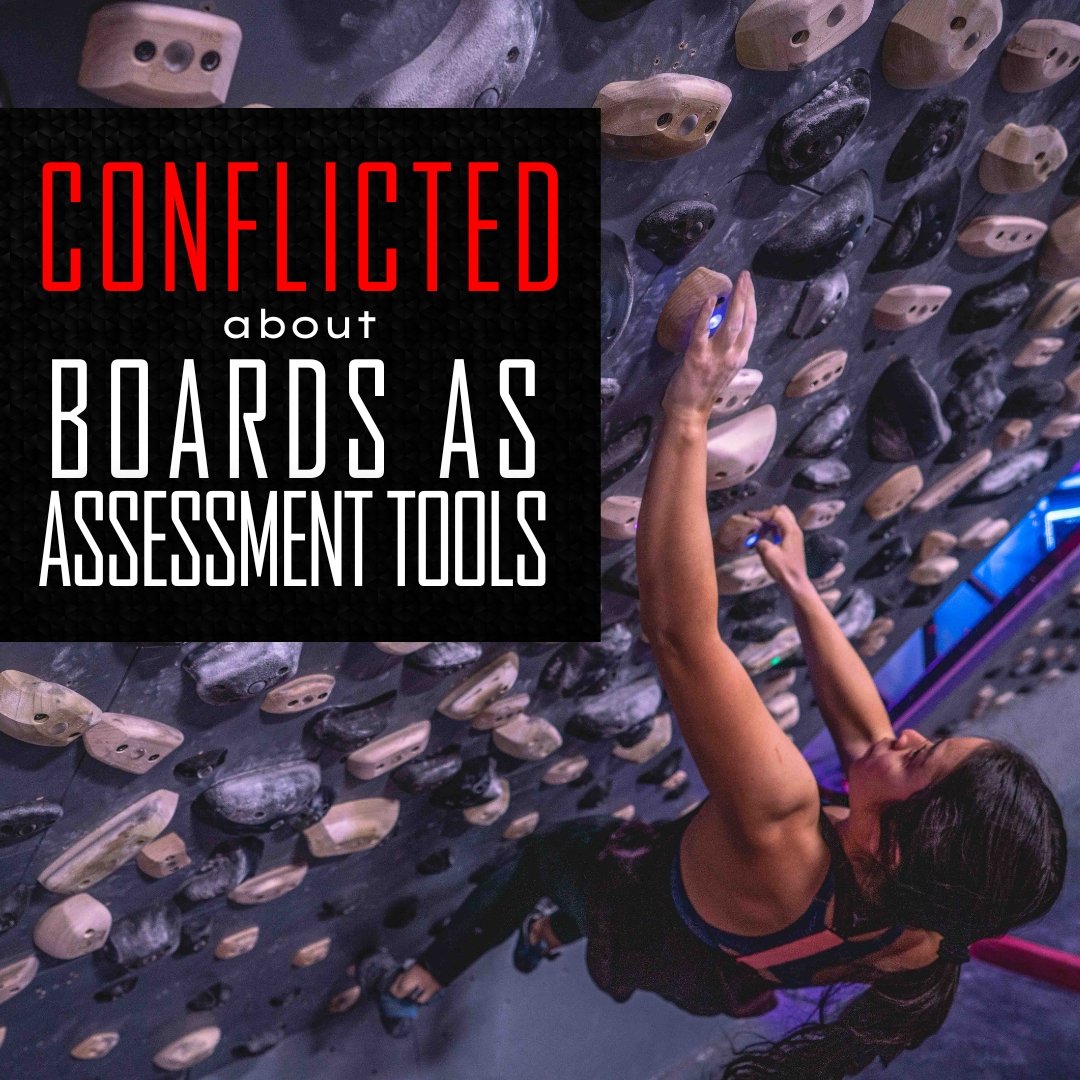
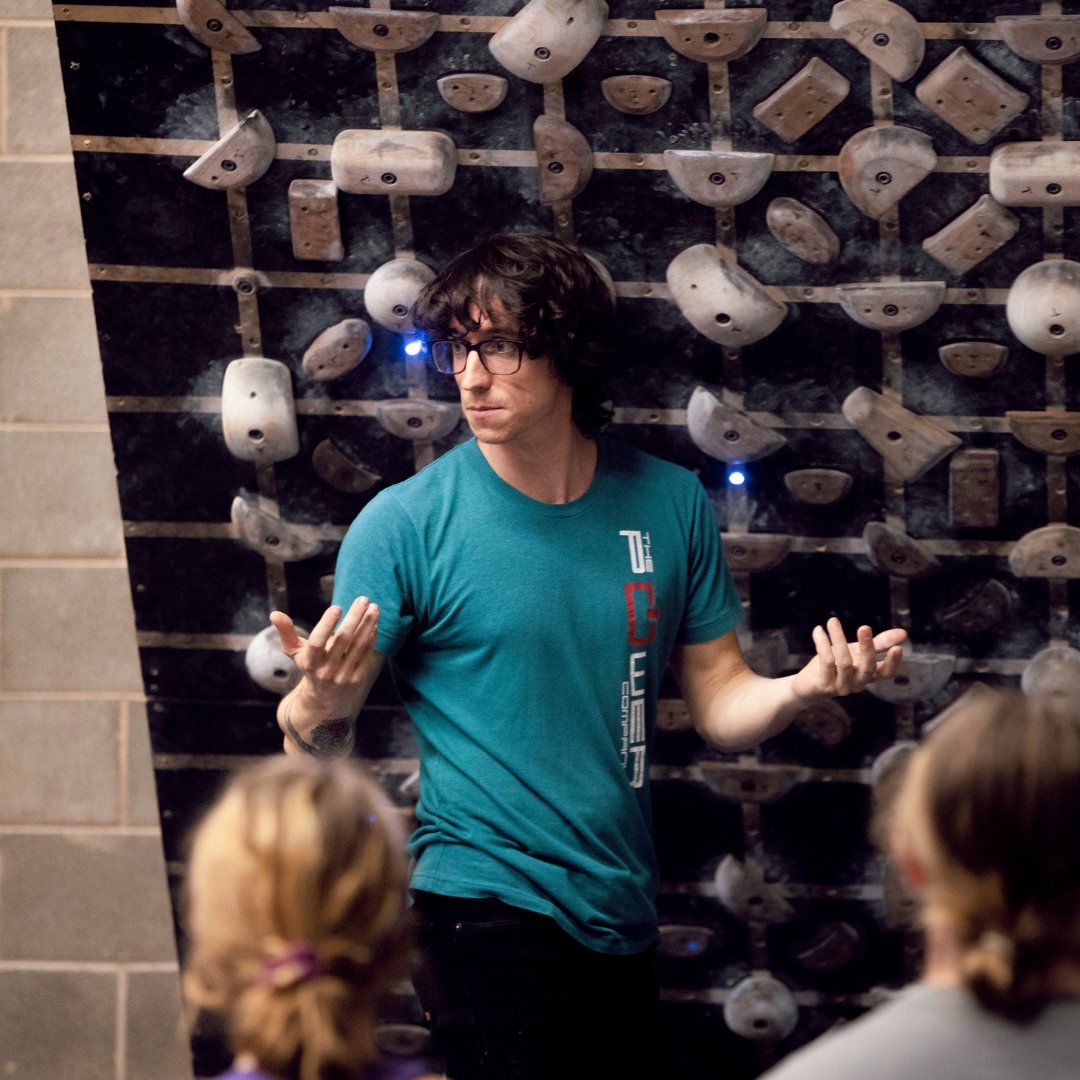
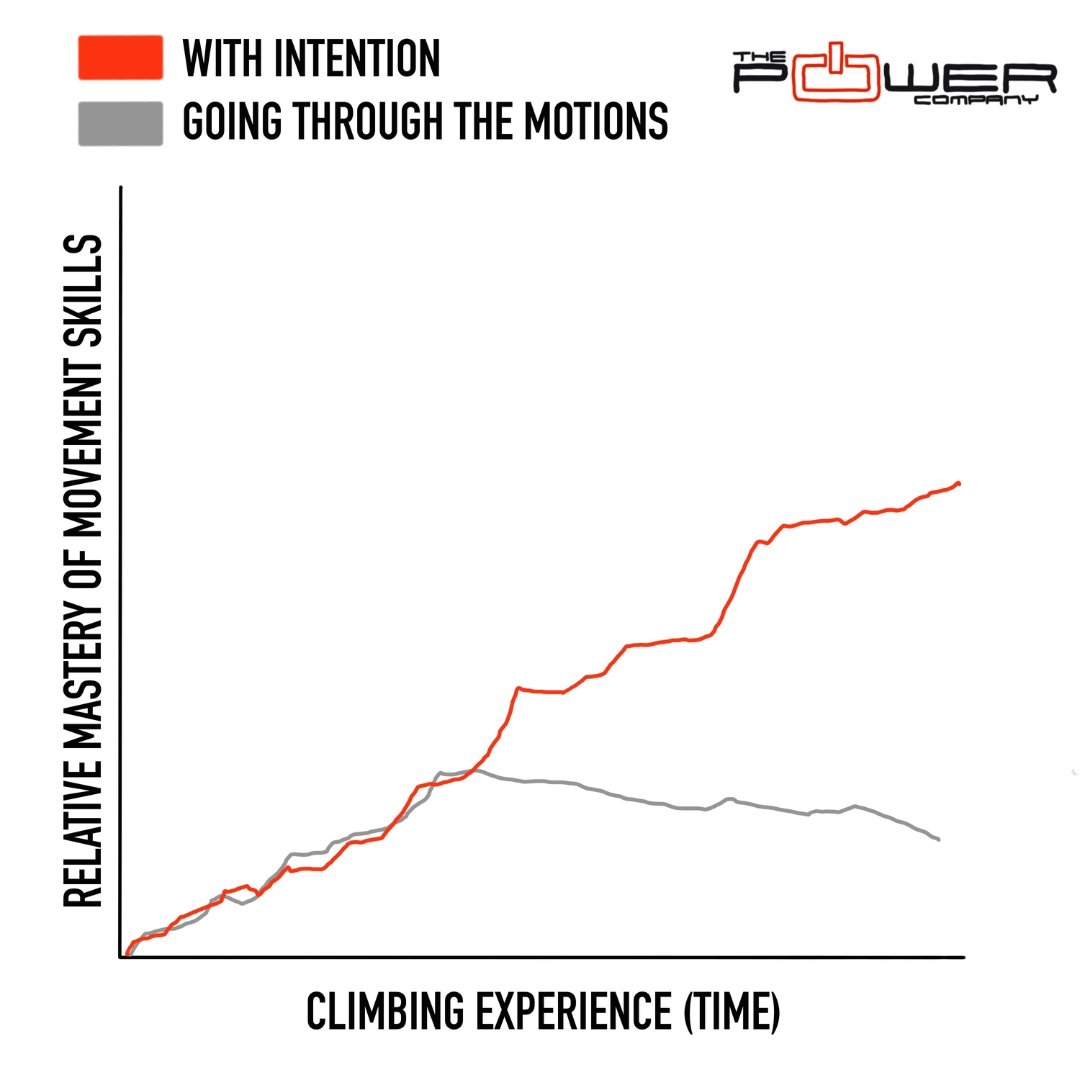




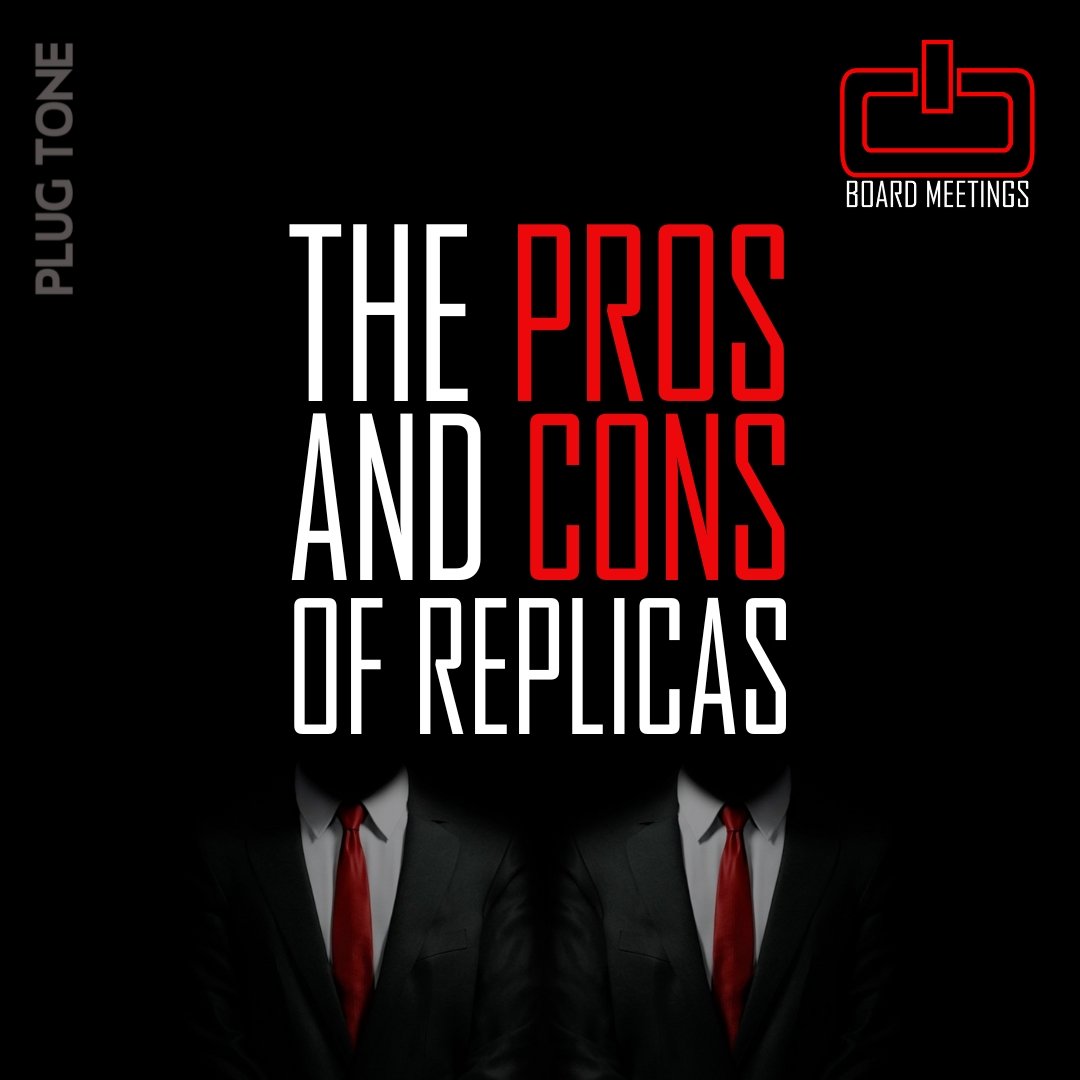


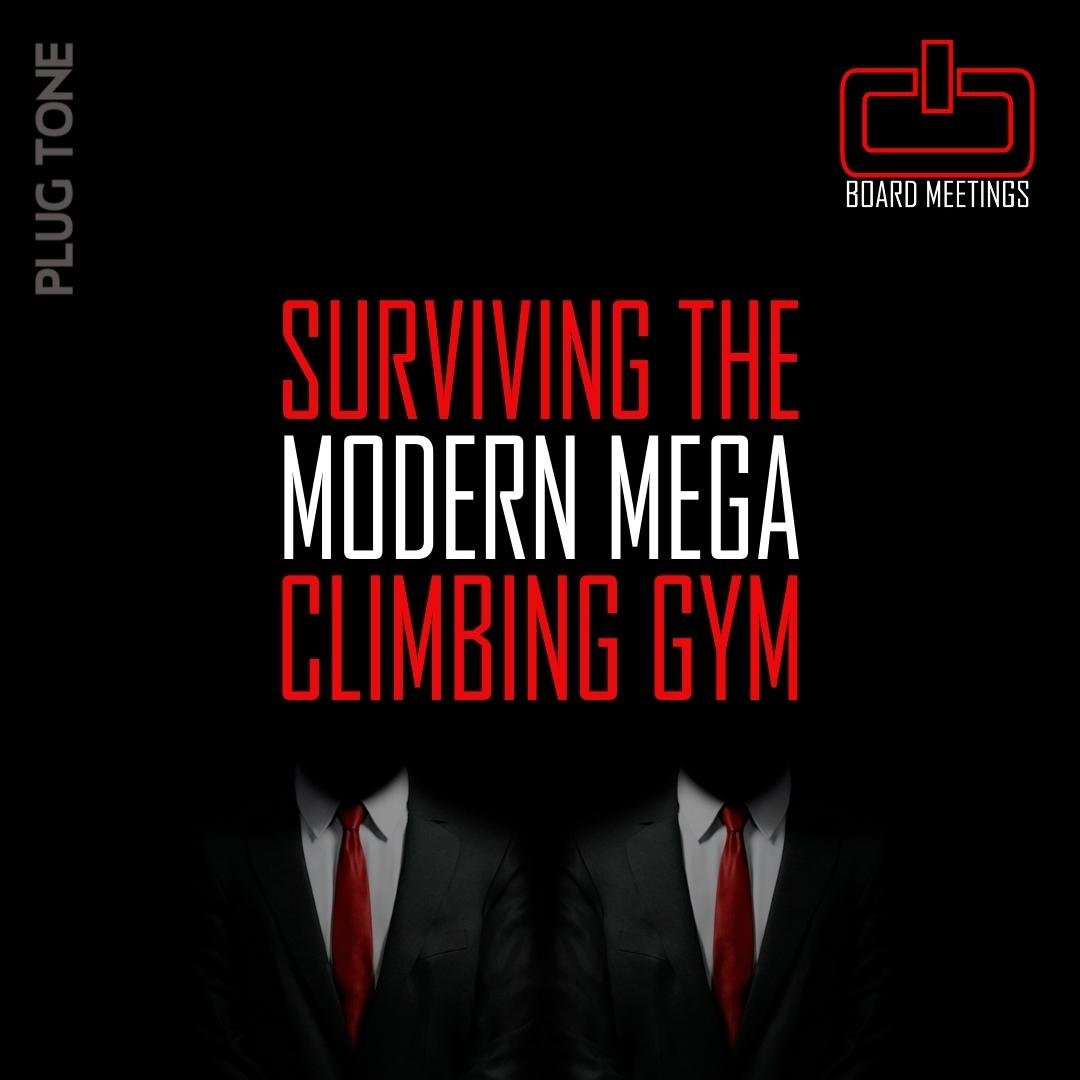


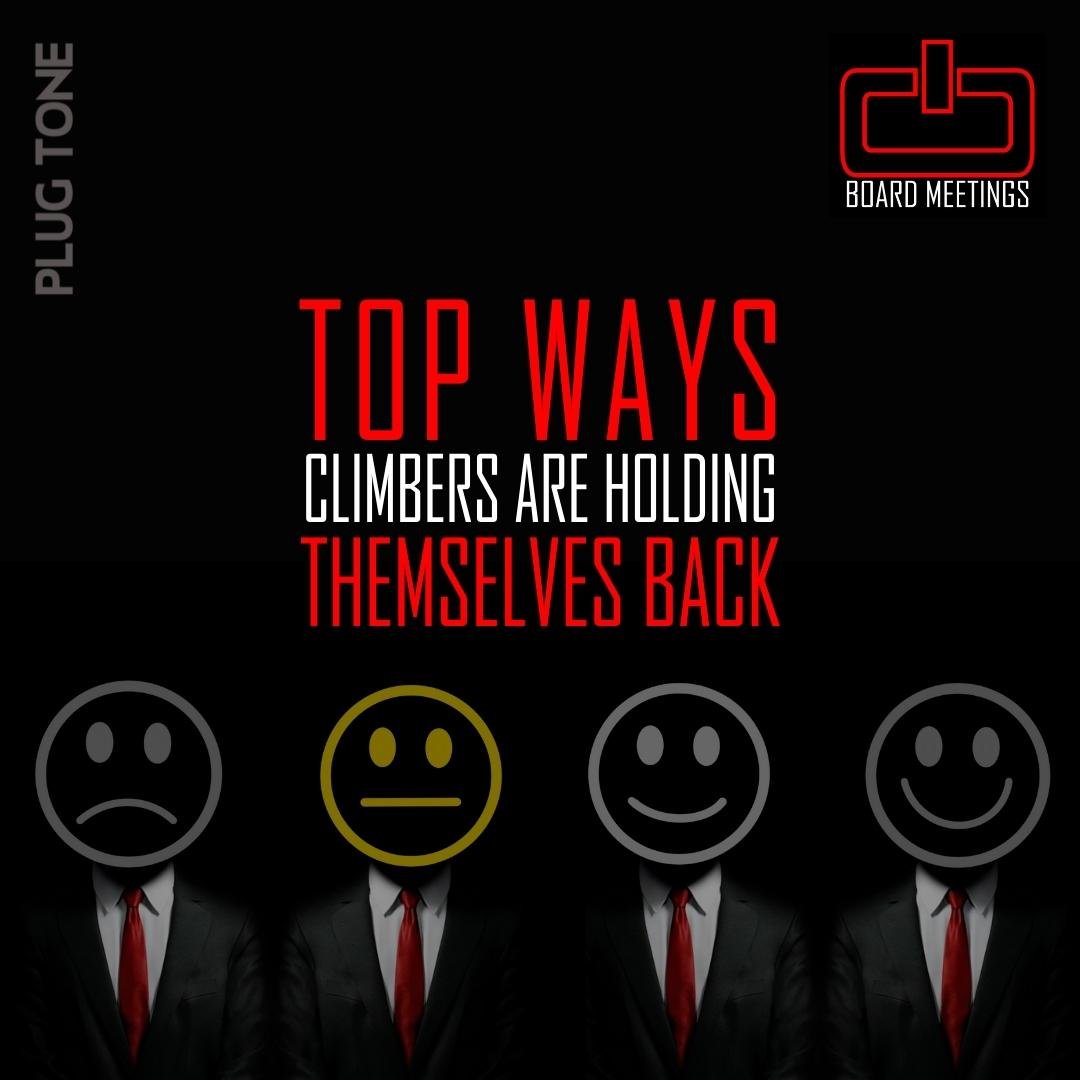



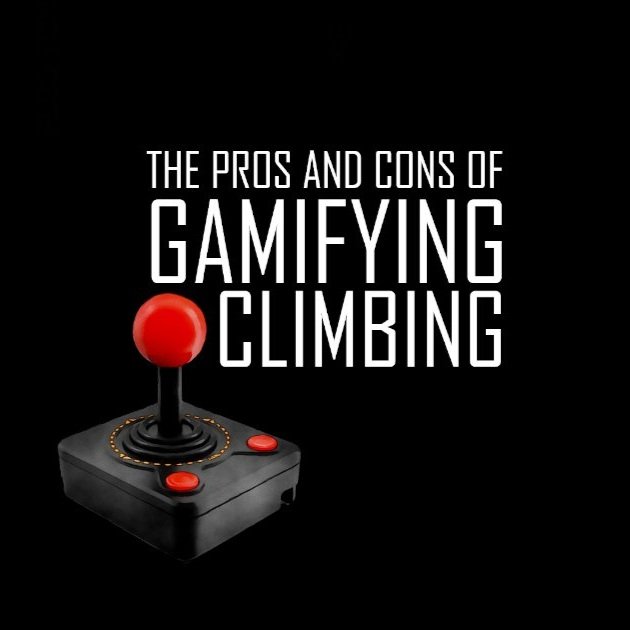

How do you know which is right for your situation?